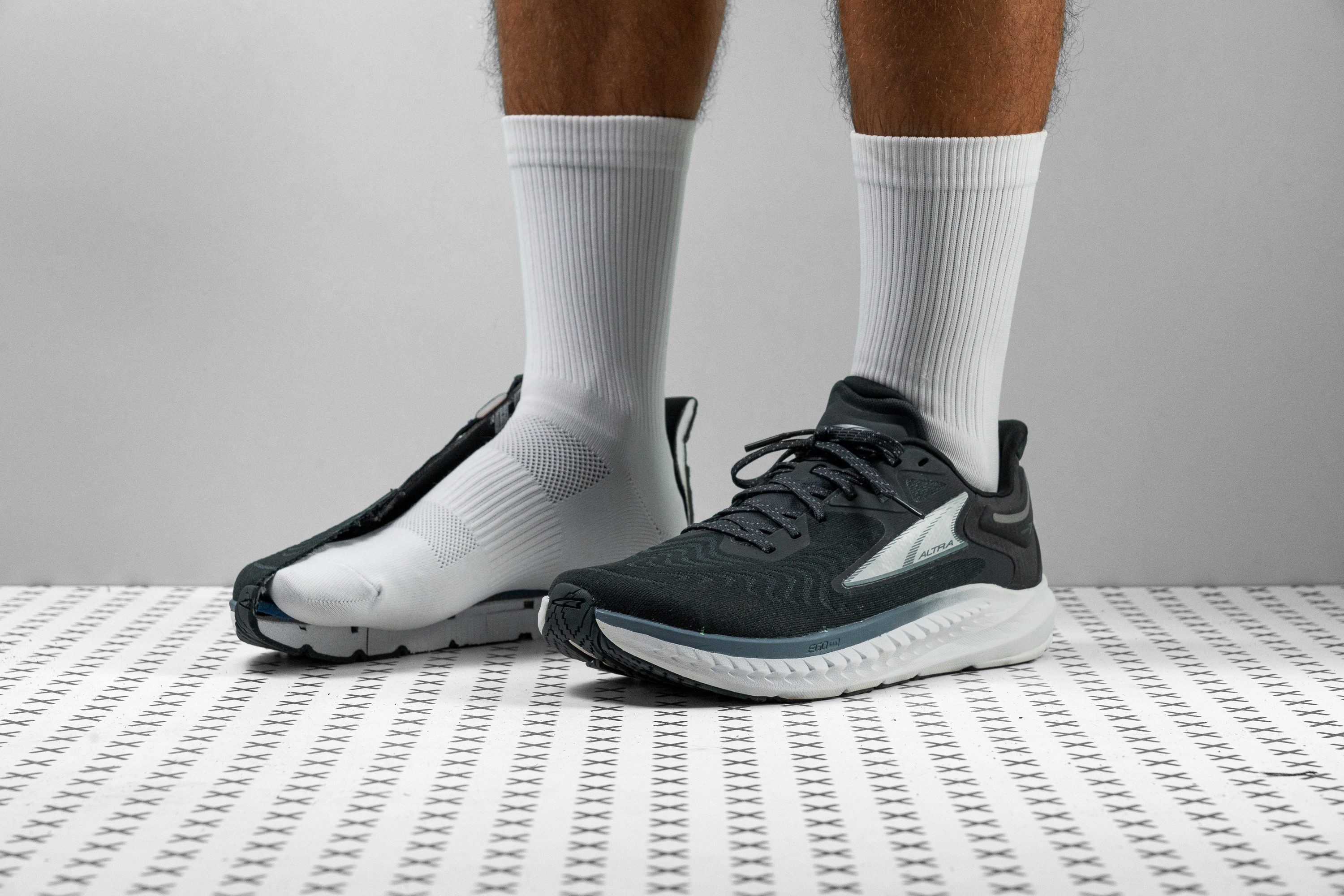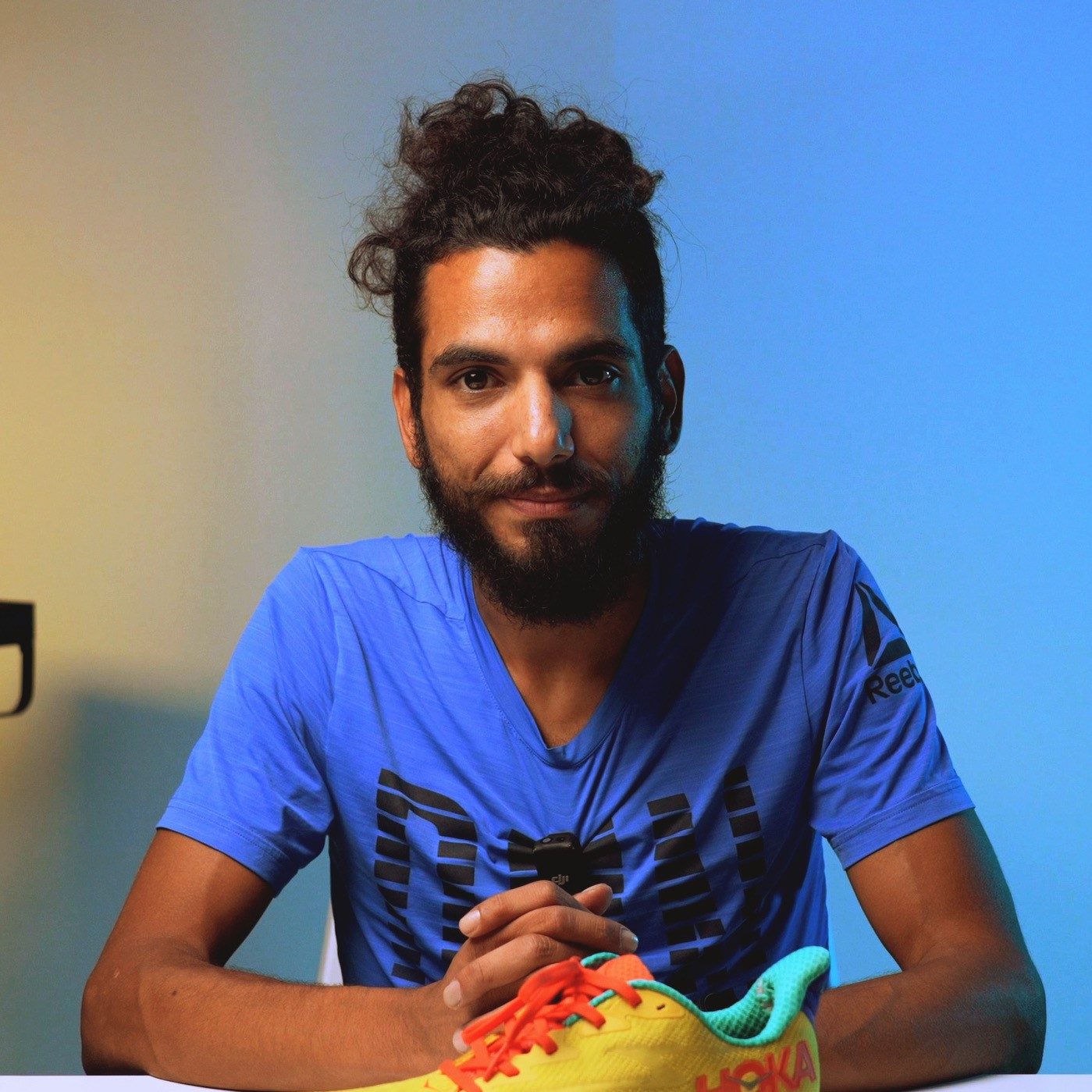Our verdict
- Top pick in best low drop running shoes (2024)
Pros
- Pleasantly lightweight
- Flexible and comfortable ride
- Very breathable
- Feels stable underfoot
- Solid midfoot lockdown
- No lace bite
- Great traction over various surfaces
- Suitable for wide feet
- Can go sockless
Cons
- Not ideal for heel strikers
- Outsole could be more durable
- Upper feels snug despite being wide
- Low energy return
Audience verdict
Comparison
The most similar running shoes compared
+ + Add a shoe | |||||
|---|---|---|---|---|---|
| Audience score | 80 Good! | 85 Good! | 84 Good! | 86 Good! | |
| Price | $150 | $165 | $140 | $150 | |
| Pace | Daily runningTempo | Daily running | Daily running | Daily running | |
| Shock absorption | Moderate | - | - | Low | |
| Energy return | Low | - | - | Moderate | |
| Traction | High | - | - | High | |
| Arch support | Neutral | Neutral | Stability | Neutral | |
| Weight lab Weight brand | 9 oz / 255g 9.8 oz / 278g | 10.4 oz / 295g 10.5 oz / 297g | 9.6 oz / 273g 10.2 oz / 289g | 9.7 oz / 275g 10.1 oz / 287g | |
| Drop lab Drop brand | -0.8 mm 0.0 mm | -0.2 mm 0.0 mm | 0.2 mm 0.0 mm | -0.1 mm 0.0 mm | |
| Strike pattern | Mid/forefoot | Mid/forefoot | Mid/forefoot | Mid/forefoot | |
| Size | True to size | True to size | True to size | True to size | |
| Midsole softness | Soft | Soft | Balanced | Balanced | |
| Difference in midsole softness in cold | Big | Small | Normal | Normal | |
| Toebox durability | Decent | Good | Decent | Good | |
| Heel padding durability | Decent | Good | Decent | Good | |
| Outsole durability | Decent | Good | Good | Good | |
| Breathability | Breathable | Warm | Moderate | Moderate | |
| Width / fit | Wide | Wide | Medium | Medium | |
| Toebox width | Wide | Wide | Wide | Wide | |
| Stiffness | Moderate | Stiff | Stiff | Moderate | |
| Torsional rigidity | Moderate | Stiff | Moderate | Moderate | |
| Heel counter stiffness | Moderate | Moderate | Flexible | Stiff | |
| Heel lab Heel brand | 27.6 mm 30.0 mm | 34.8 mm 33.0 mm | 26.0 mm 28.0 mm | 27.6 mm 30.0 mm | |
| Forefoot lab Forefoot brand | 28.4 mm 30.0 mm | 35.0 mm 33.0 mm | 25.8 mm 28.0 mm | 27.7 mm 30.0 mm | |
| Widths available | NormalWide | Normal | Normal | NormalWide | |
| Orthotic friendly | ✓ | ✓ | ✓ | ✓ | |
| Season | SummerAll seasons | All seasons | All seasons | All seasons | |
| Removable insole | ✓ | ✓ | ✓ | ✓ | |
| Ranking | #614 Bottom 10% | #233 Bottom 39% | #258 Bottom 32% | #179 Top 47% | |
| Popularity | #231 Top 34% | #132 Top 35% | #255 Bottom 33% | #74 Top 20% |
Who should buy
We recommend the Altra Torin 7 as a great choice for:
- More experienced runners looking for a zero drop daily trainer
- Runners with broader feet who prefer shoes with a more natural, foot-shaped silhouette
- Forefoot strikers whole want a good balance between ground feel and protective cushioning
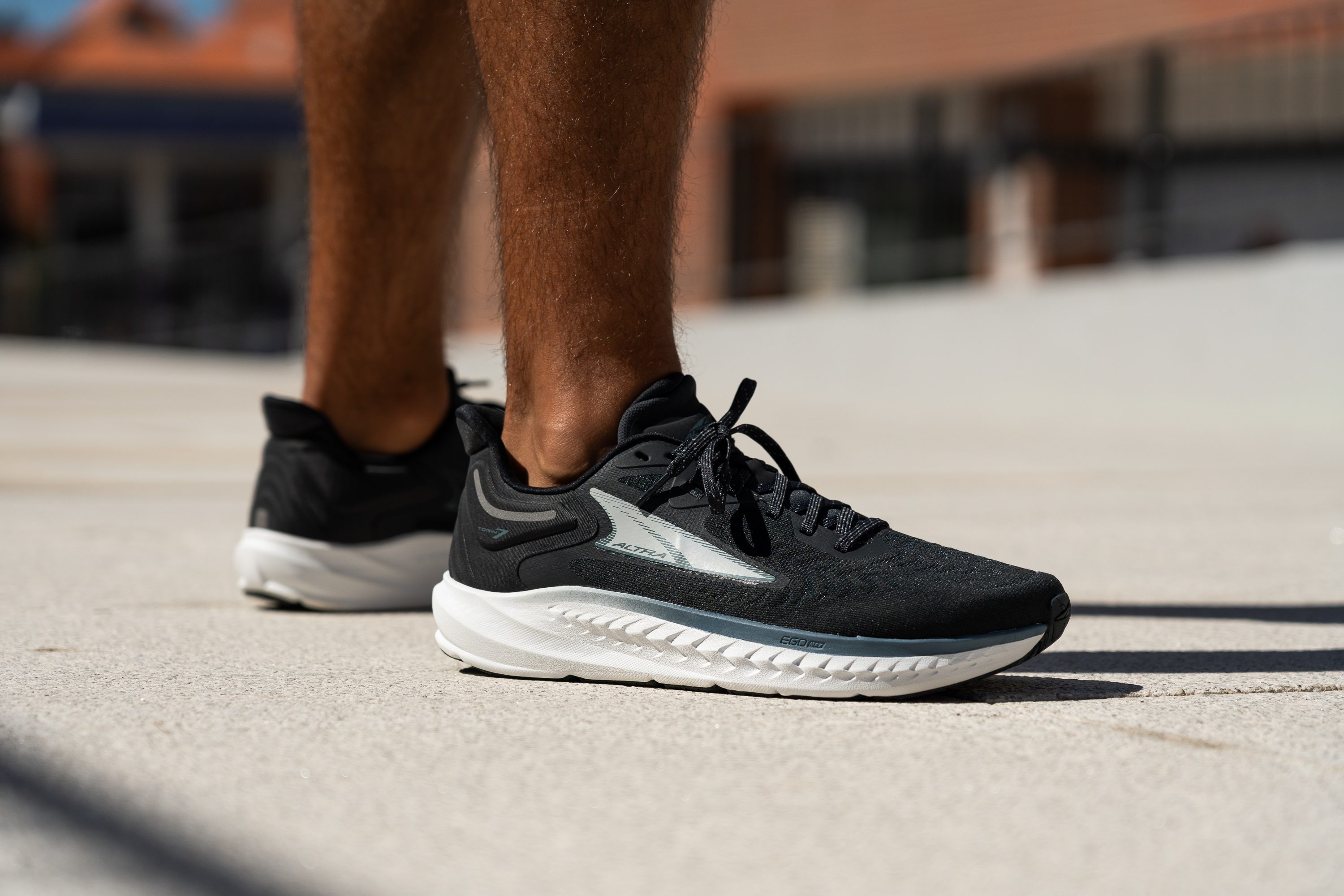
Who should NOT buy
Individuals with pre-existing calf or Achilles tendon injuries should steer clear of the Torin 7 and other zero-drop shoes. For those runners, we recommend a shoe with a stable base and a higher drop like the similarly versatile Brooks Ghost 15.
Pronating runners in need of a mild-stability shoe that also sports a zero drop should consider the Altra Provision 7 instead.
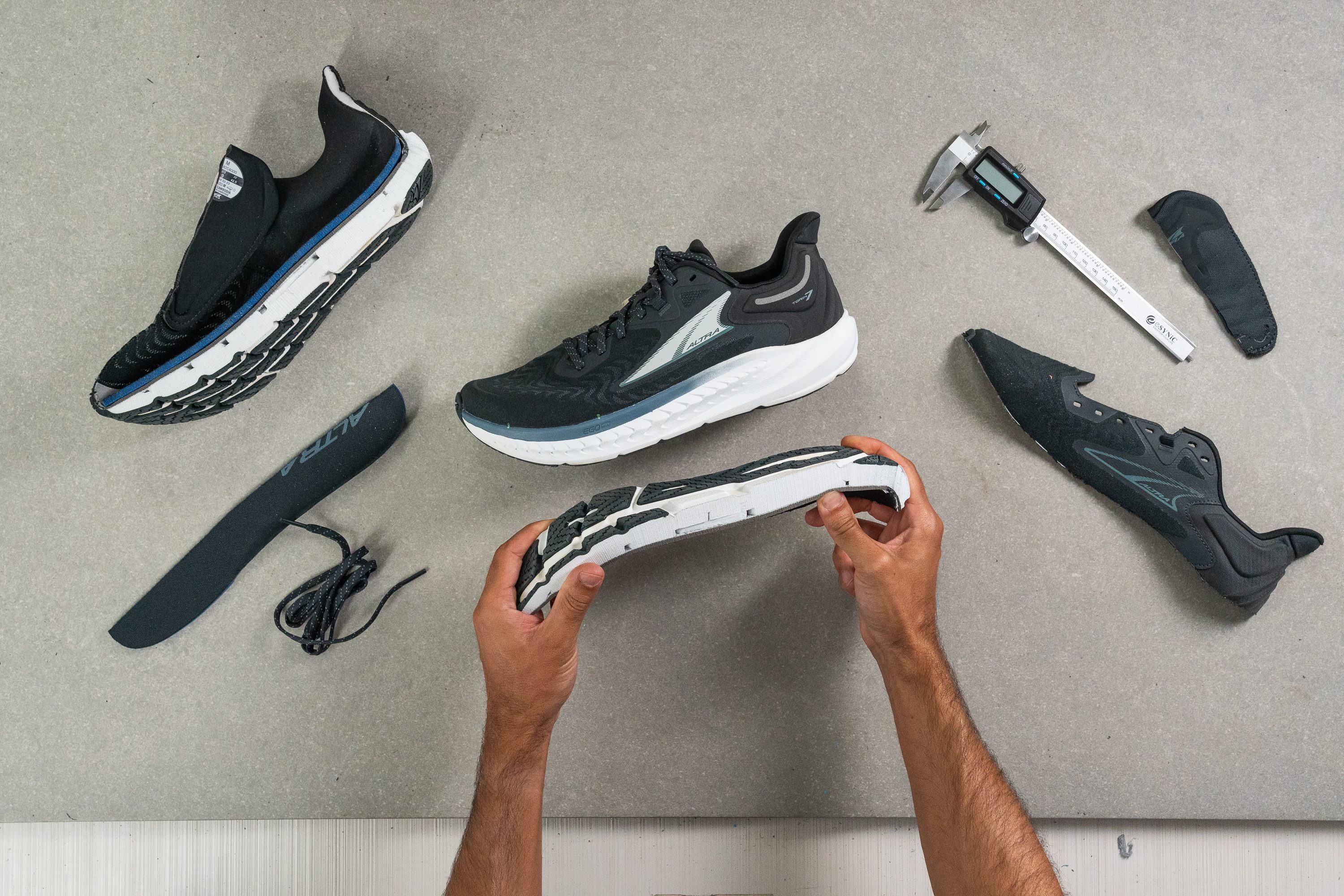
Cushioning
Shock absorption
The Torin 7 is Altra’s neutral daily trainer and delivers moderate shock absorption—clocking 110 SA in the heel and 113 SA in the forefoot. While the heel might seem slightly underwhelming at first glance, keep in mind that zero-drop shoes like this are specifically designed to encourage a midfoot or forefoot strike.
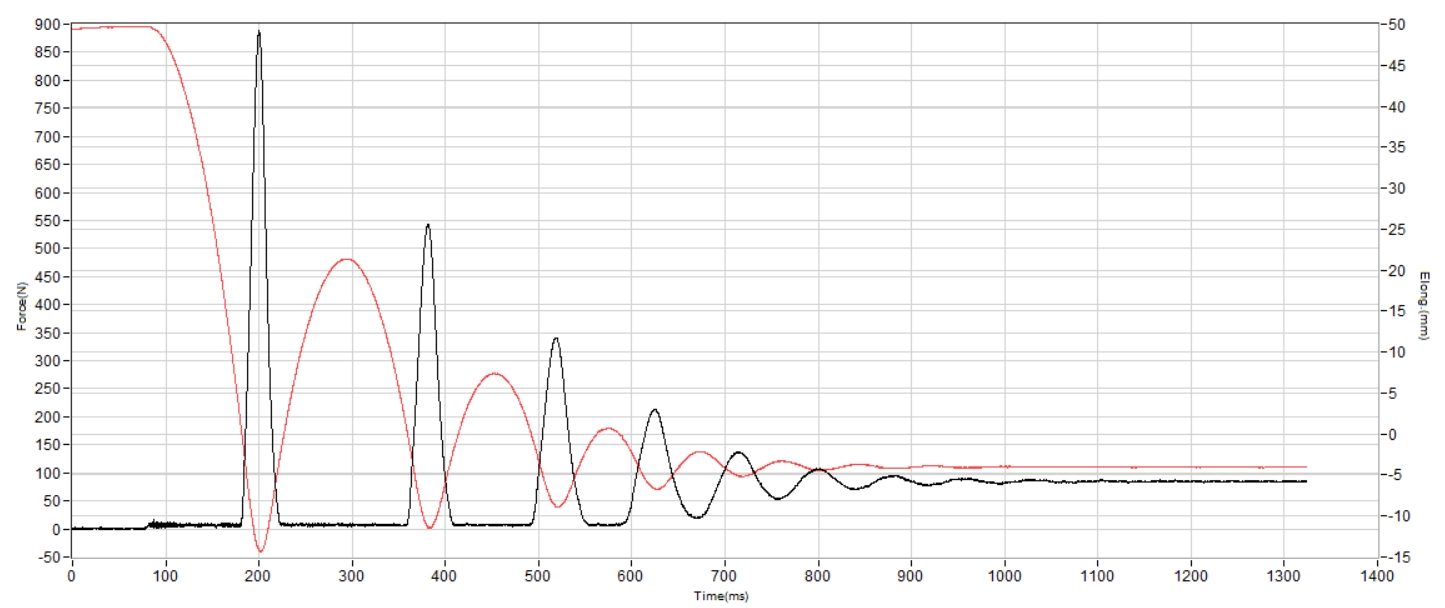
| Torin 7 | 110 SA |
| Average | 130 SA |
Energy return
We tested the Torin 7 in the lab and found its energy return low—just 47.8% in the heel and 51.1% in the forefoot. That places it far below the average and makes it one of the least bouncy shoes we’ve seen for its retail price.
| Torin 7 | 47.8% |
| Average | 58.6% |
Heel stack
We measured the Torin 7’s heel stack to be 27.6 mm thick. While this is quite a bit shorter than our current lab average, it’s still enough to provide enough cushioning for well protected landings while providing us with a good amount of ground-feel during our runs.
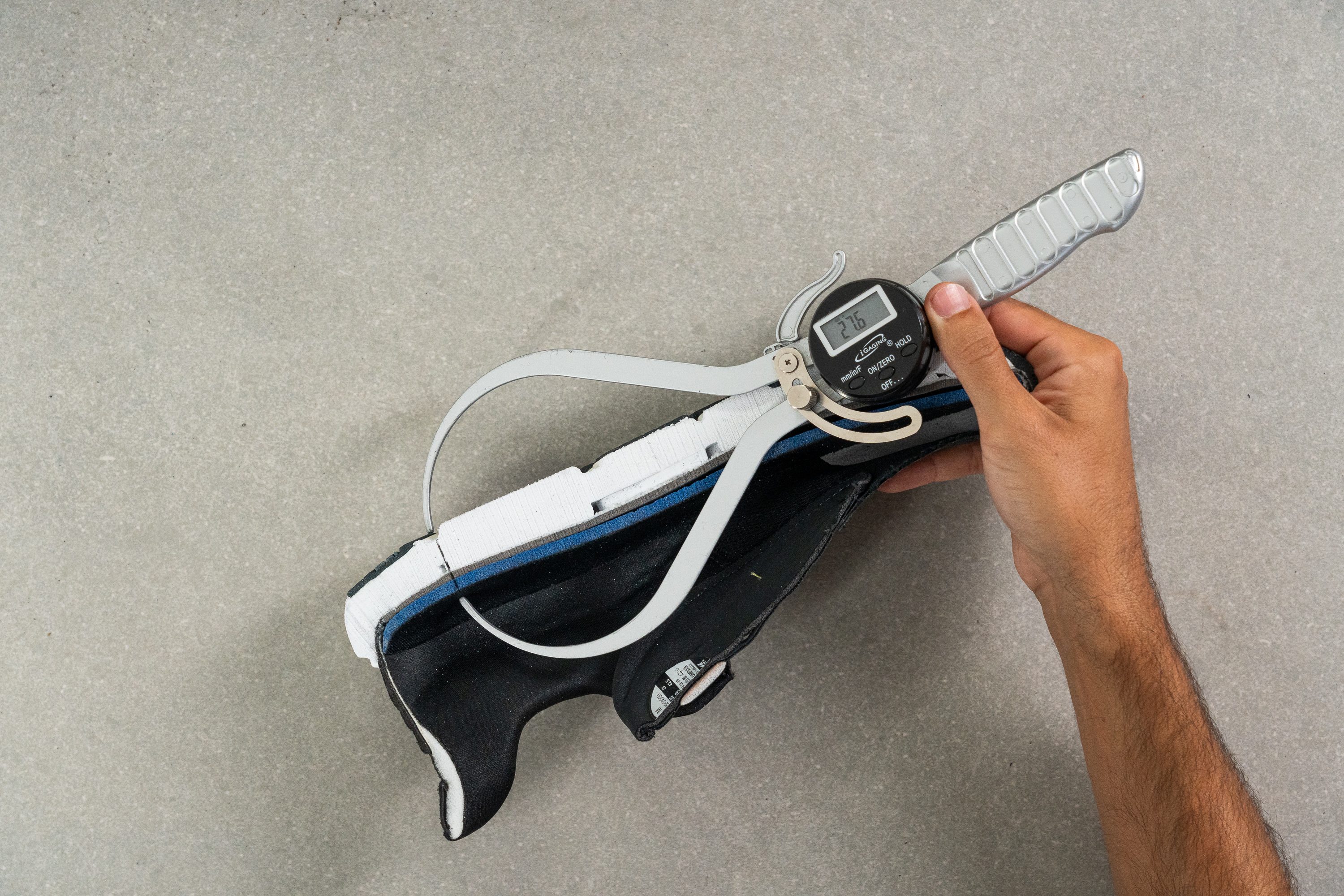
| Torin 7 | 27.6 mm |
| Average | 34.8 mm |
Forefoot stack
As a zero drop shoe we expected the Torin 7’s forefoot stack to match the heel, but curiously we measured it with our caliper to be 28.4 mm. This is thicker than the average shoe and 3.3 mm more foam underfoot than the shoe’s previous iteration.
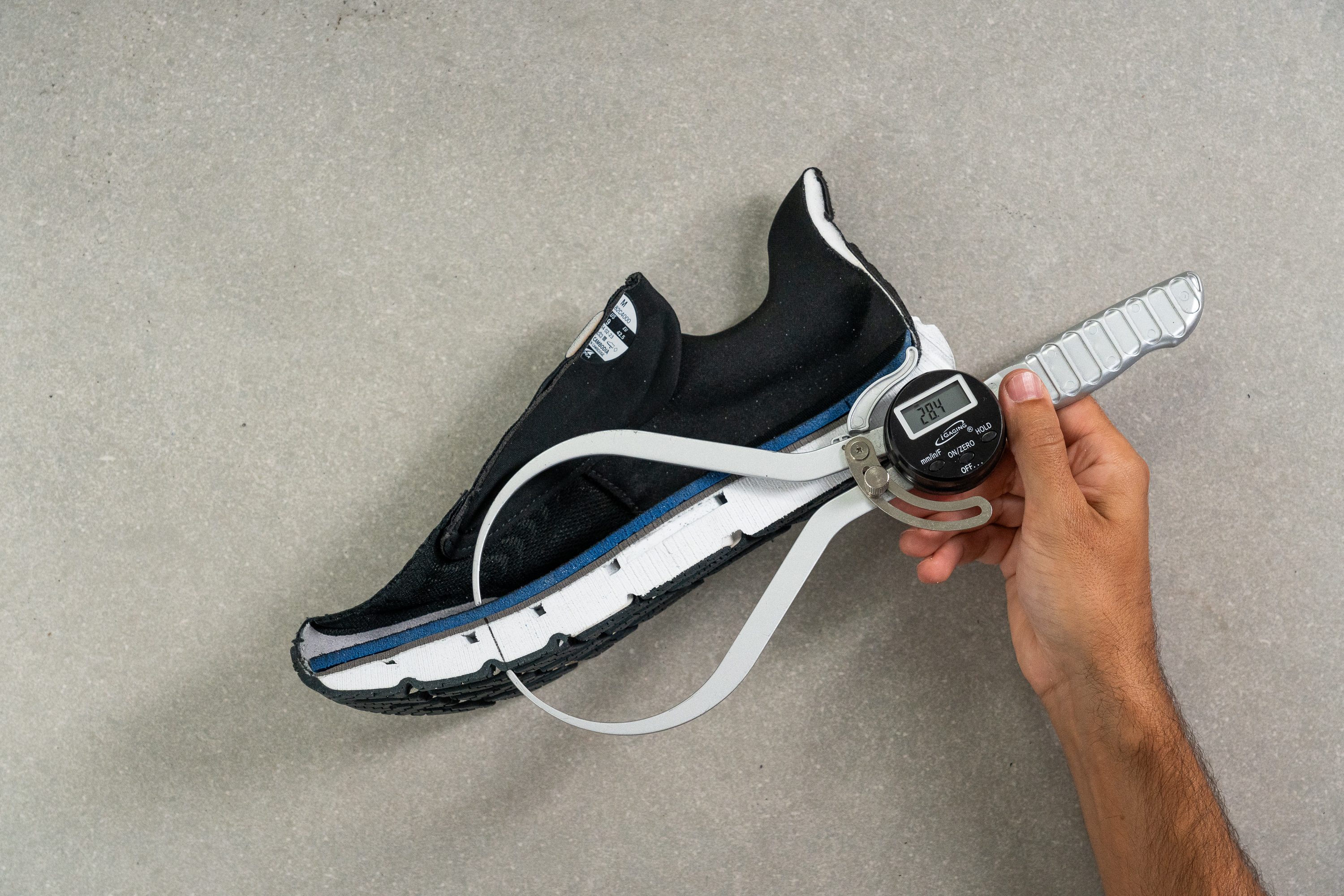
| Torin 7 | 28.4 mm |
| Average | 26.2 mm |
Drop
As mentioned in the previous section, while officially advertised as a zero drop shoe, the difference in our stack measurements leaves the Torin 7 with a negative heel drop of -0.8 mm. This difference is very small however, so only very attuned runners will notice as the Torin 7 does feel like a zero drop shoe for all intents and purposes.
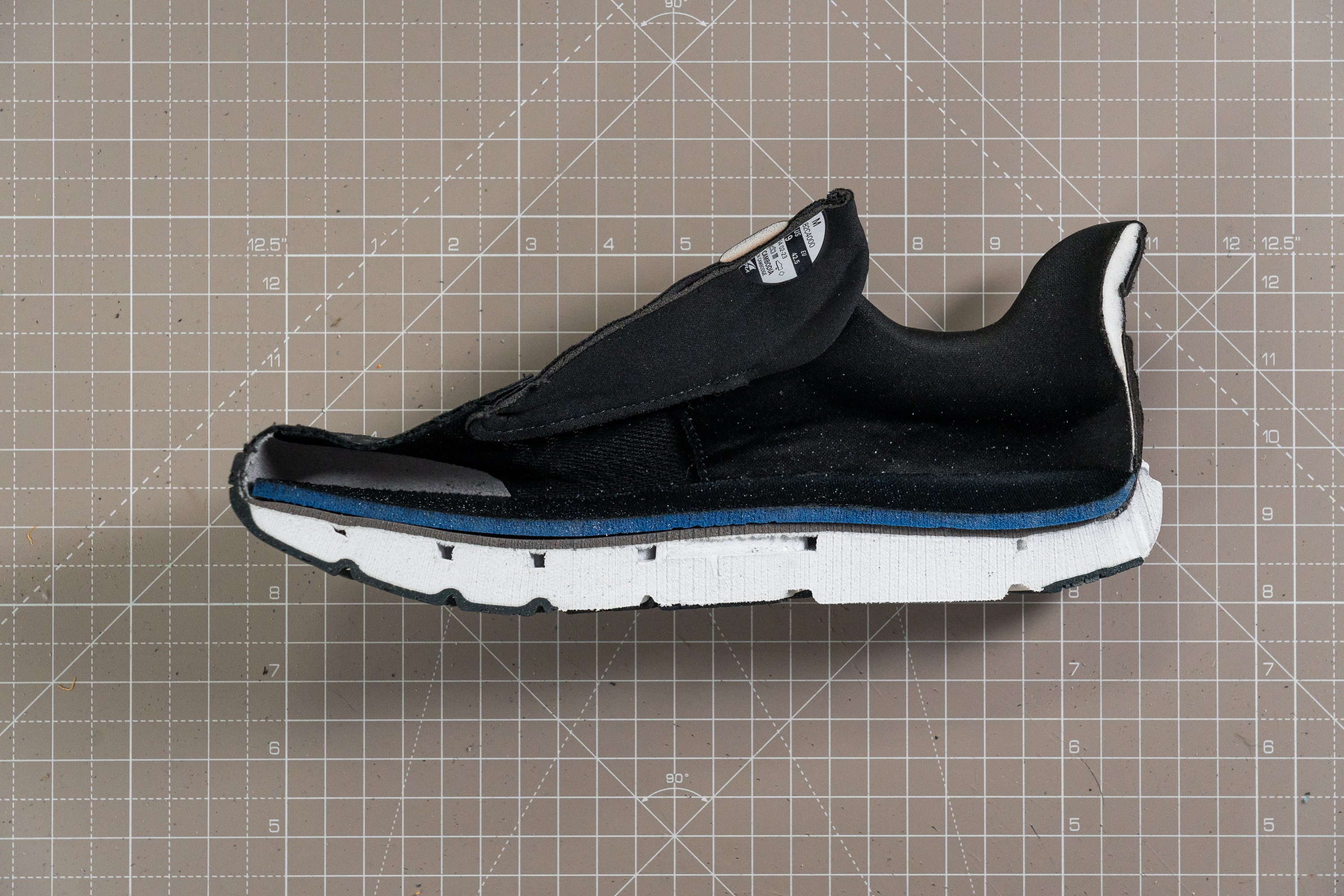
Zero drop shoes do feel more natural as they mimic the motion of our bare feet, however they can lead to calf or Achilles tendon injuries for those unused to them while many of the purported benefits are purely anecdotal. We don’t recommend that beginner runners or heel strikers used to running in high drop shoes jump straight into the deep end with a zero drop shoe, but rather transition down gradually from shoes with lower heel drops. This helpful guide goes through the pros and cons of different drop heights.
| Torin 7 | -0.8 mm |
| Average | 8.6 mm |
Midsole softness
We pressed our durometer against the Torin 7’s midsole to measure how soft it is and got a reading of 16.8 HA. This is significantly softer than our current lab average and means that the shoe’s cushioning is plush and comfortable underfoot. While many proponents of zero drop shoes enjoy a more barefoot running sensation, we found the Torin 7’s midsole to be a good balance between cushioning and ground feel during our test runs.
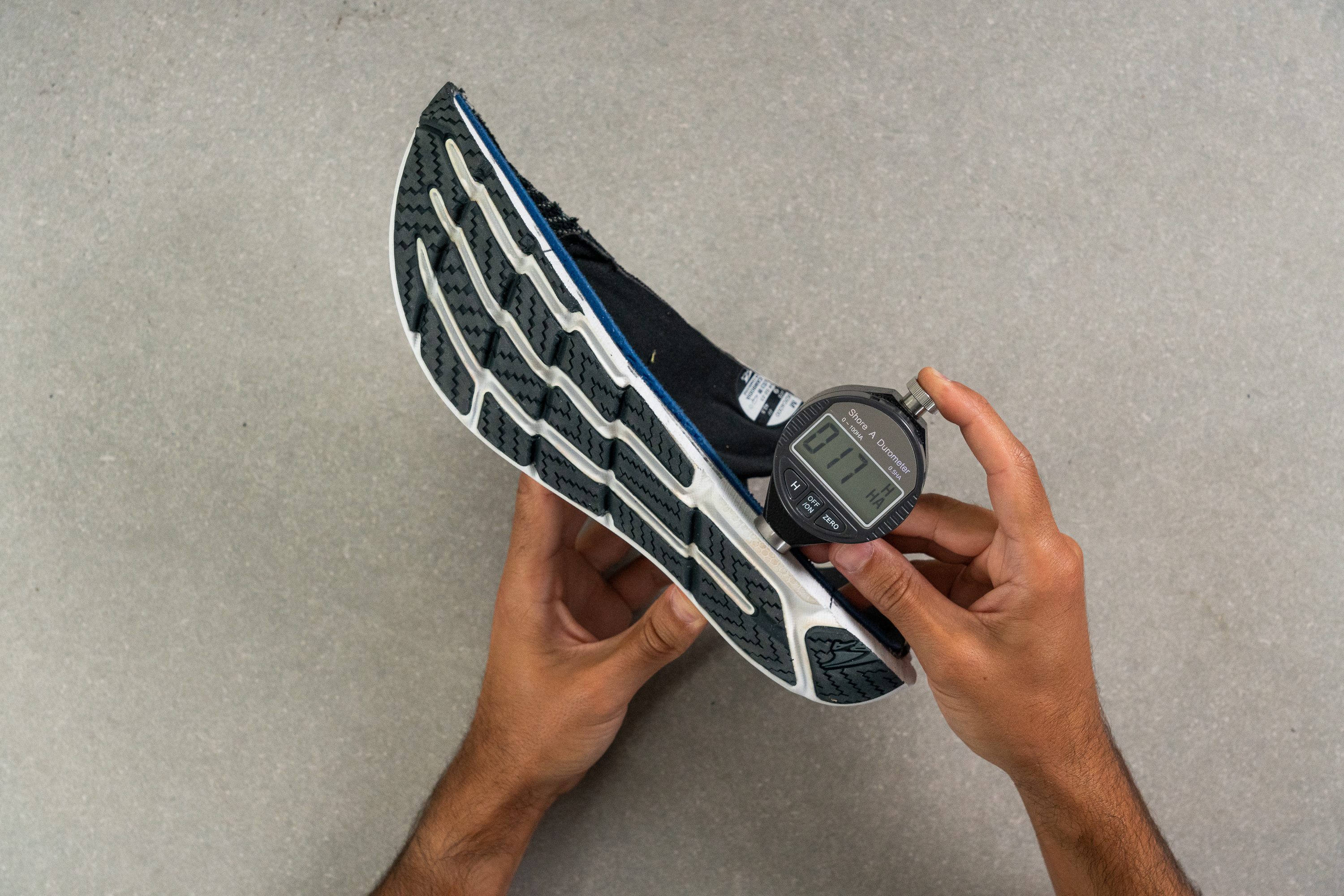
In spite of the softness of its midsole, we found the Torin 7’s EGO Max foam to have a lively bounce that is comparable to other supercritical foams like Saucony’s PWRRUN. This meant that whether we pushed the pace during tempo sessions or buckled down for long distance efforts, the Torin 7 had our back with a ride that is protective as well as responsive.
| Torin 7 | 16.8 HA |
| Average | 20.4 HA |
Size and fit
Size
Altra Torin 7 fits true to size (63 votes).
Internal length
| Torin 7 | 273.5 mm |
| Average | 269.4 mm |
Width / Fit
The Torin series from Altra is... as KISS might sing, crazy crazy crazy wide! We felt this immediately upon running in the shoes, and to confirm, we created a custom gel mold of the interiors for detailed measurements.
The first one, taken at the widest part of the shoe, came in at an ultra-wide 101.1 mm. That’s definitely crazy spacious and offers unmatched room.
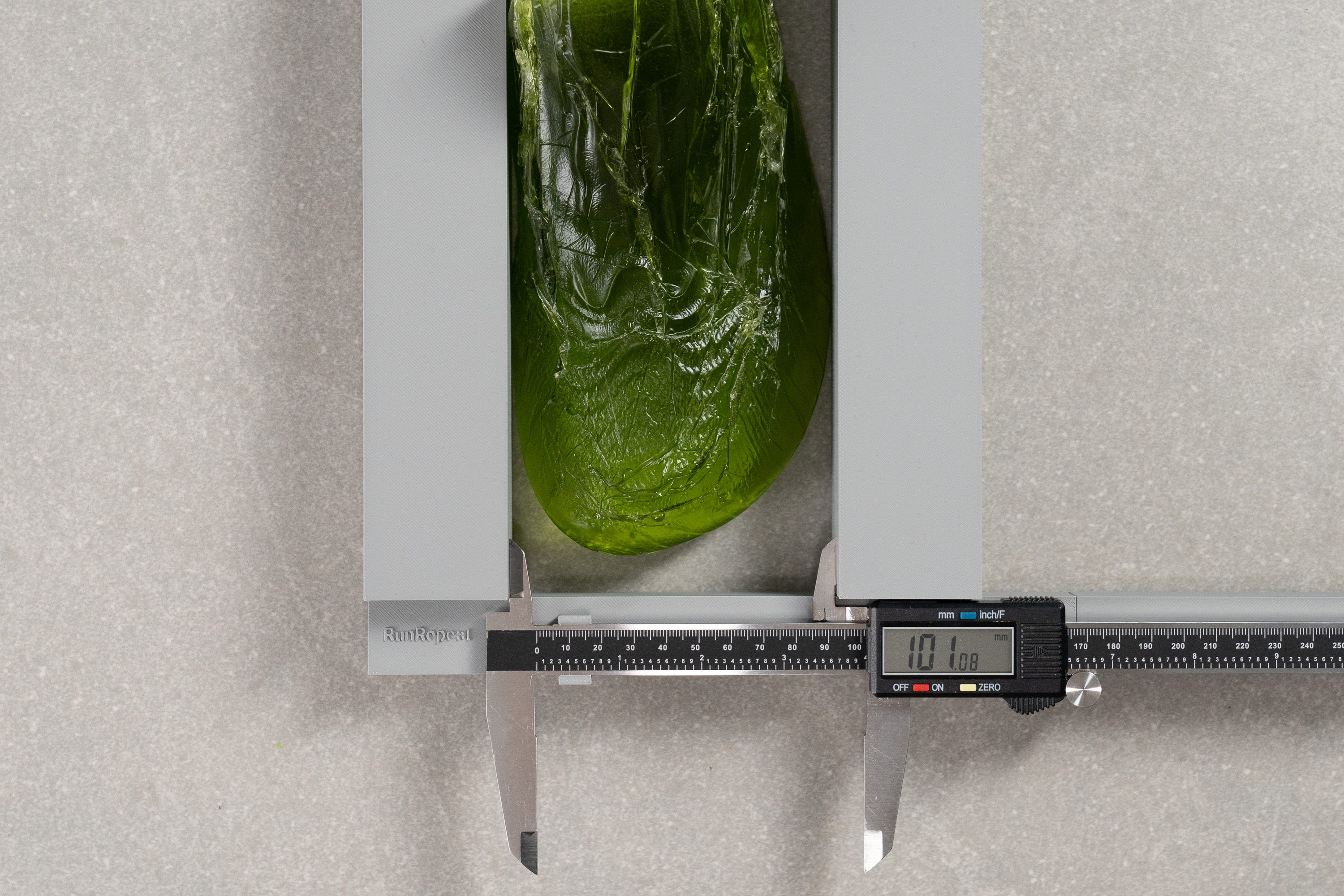
| Torin 7 | 101.1 mm |
| Average | 95.1 mm |
Toebox width
As with all Altra shoes, the magic lies in its toe-shaped design, delivering an anatomic fit that mirrors the natural shape of the foot. We discovered an impressive 83.6-mm measurement during the second round—massive but entirely expected from this brand, and simply amazing for those with broader feet shapes.
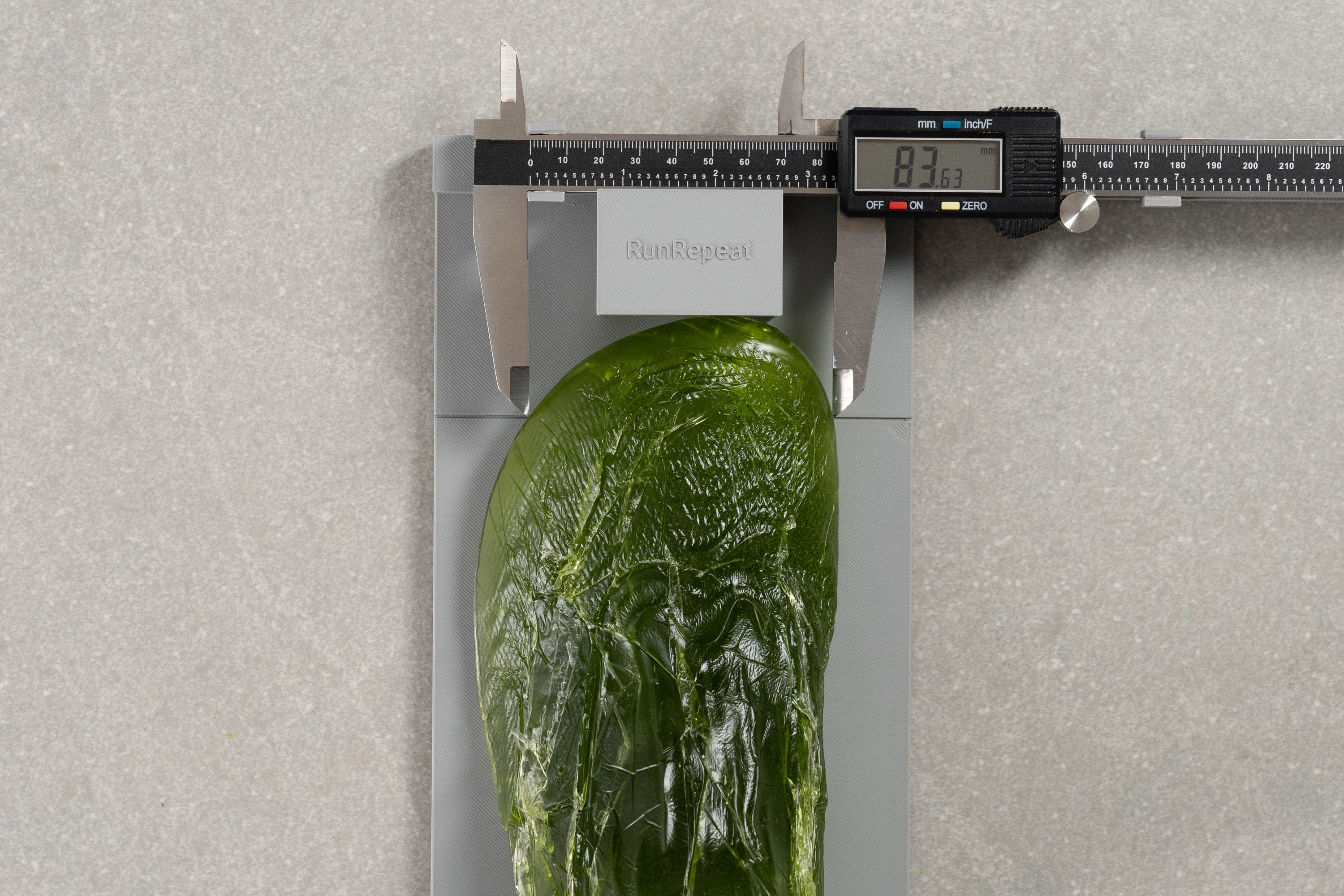
| Torin 7 | 83.6 mm |
| Average | 73.3 mm |
Toebox height
While the shoe is undeniably spacious, it features a low toebox. This isn’t based on guesswork or assumptions but on a 23.0-mm measurement.
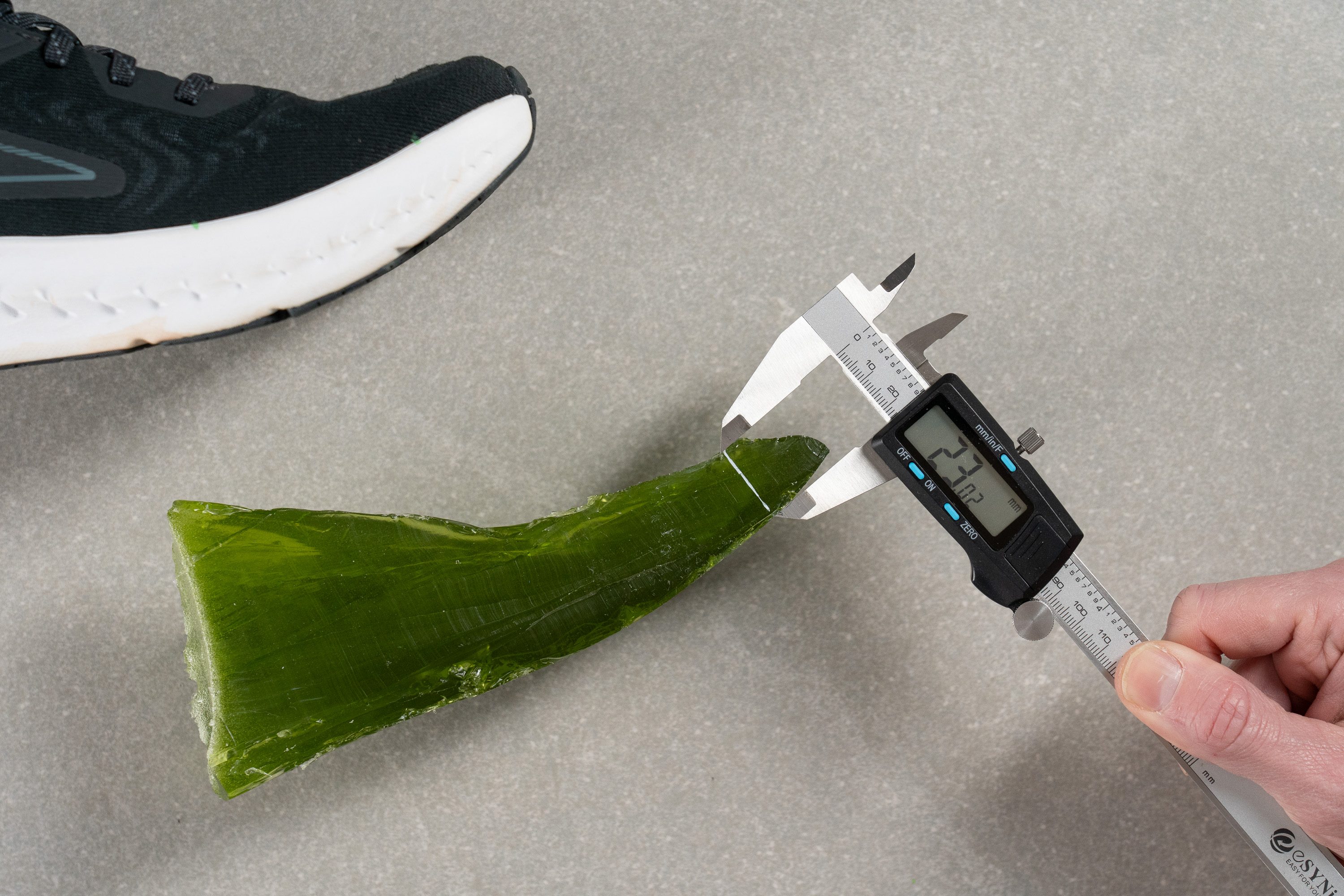
| Torin 7 | 23.0 mm |
| Average | 27.0 mm |
Traction / Grip
Traction test
Despite an average result in our durability test, the Torin 7’s outsole turned out to be one of the shoe’s surprise highlights.
Its strategically patterned design boosts flexibility, while the grippy compound earned a strong 0.64 in our wet-surface test. During our runs, we found it delivered confident traction across a range of dry and wet surfaces, showing that outsole performance doesn't always depend on brute durability alone.
| Torin 7 | 0.64 |
| Average | 0.49 |
Outsole design
The outsole of the Torin 7 is clearly built with weight savings in mind. Altra added rubber only in key high-wear zones to keep durability in check, but they’ve taken a minimalist approach overall. The medial side includes a rubber cutout, and there’s a noticeable amount of exposed foam in the midfoot.
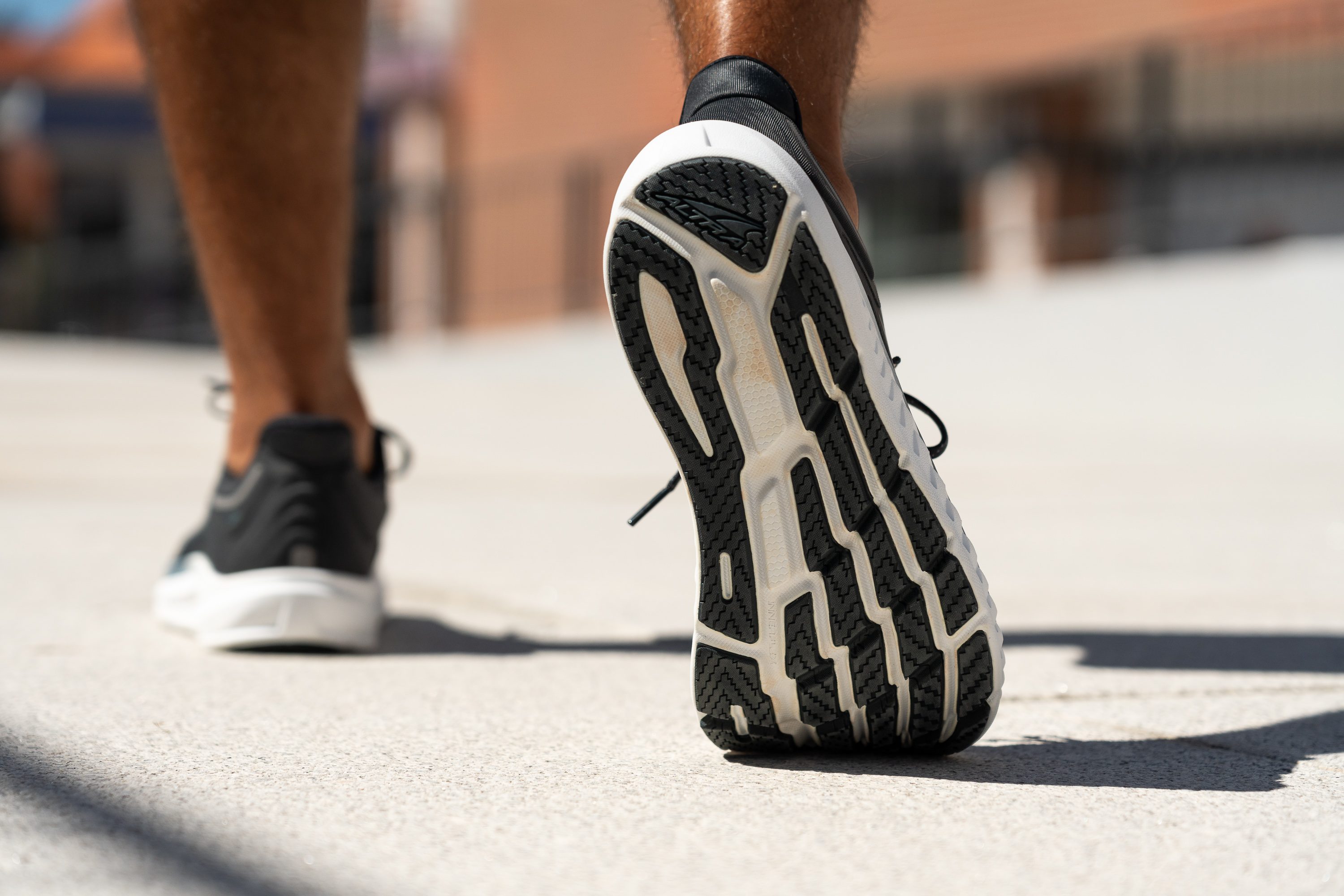
Flexibility / Stiffness
We secured the Torin 7 to our machine and measured how much force is required to torque the shoe to 30 degrees. With a result of 14.1N, the Torin 7 is similar to the average road shoe. This contributes to the shoe’s comfy ride as the Torin 7 easily bends with the movement of our feet during our stride without forcing it into unnatural positions and shapes.
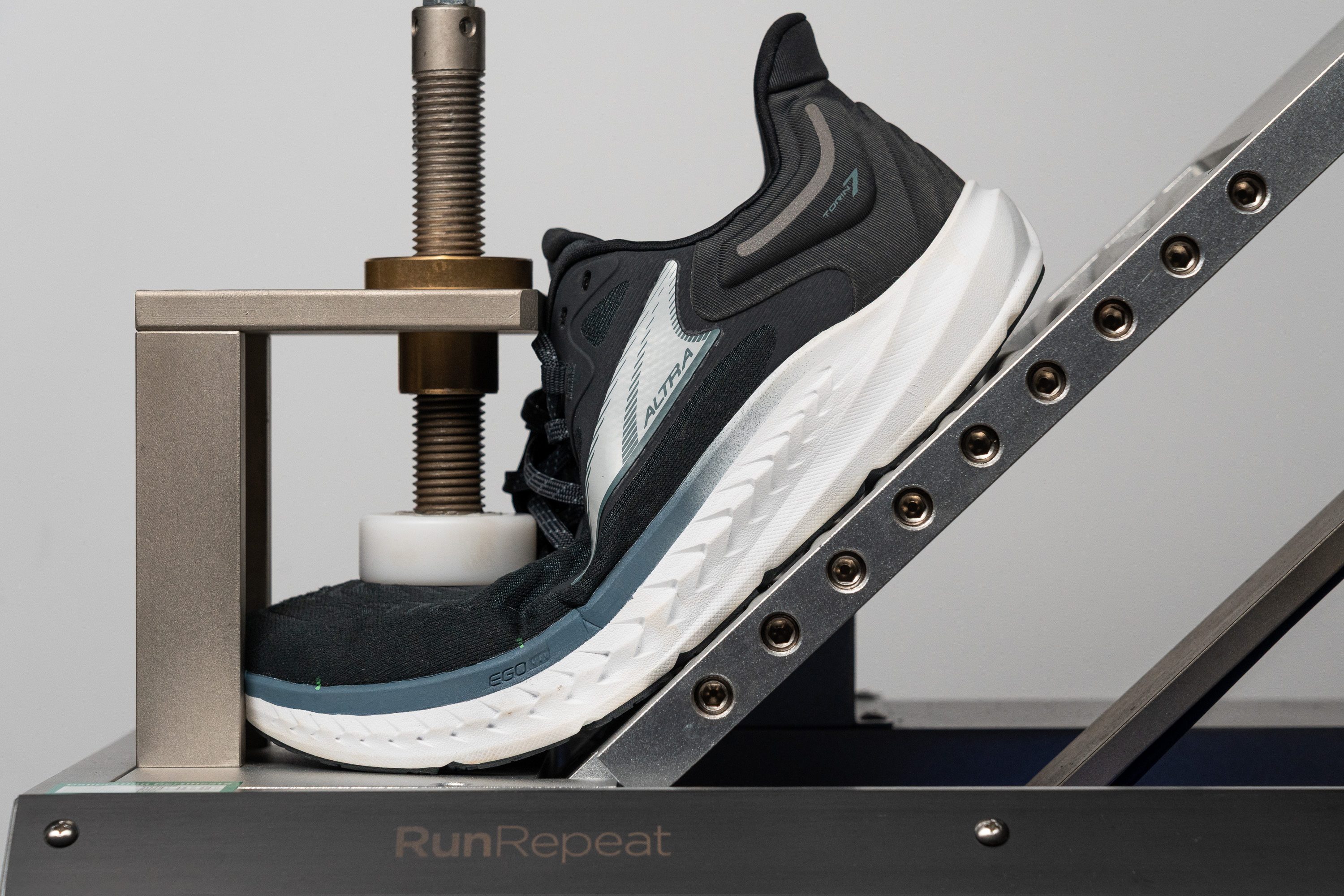
| Torin 7 | 14.1N |
| Average | 15.3N |
Weight
Weighing in at 9 Oz (255g), the Torin 7 is only 0.04 Oz (1g) heavier than its previous iteration despite boasting a higher stack. This makes the Torin 7 lighter than the average road shoe means that it isn’t too burdensome for tempo sessions or long distance efforts.
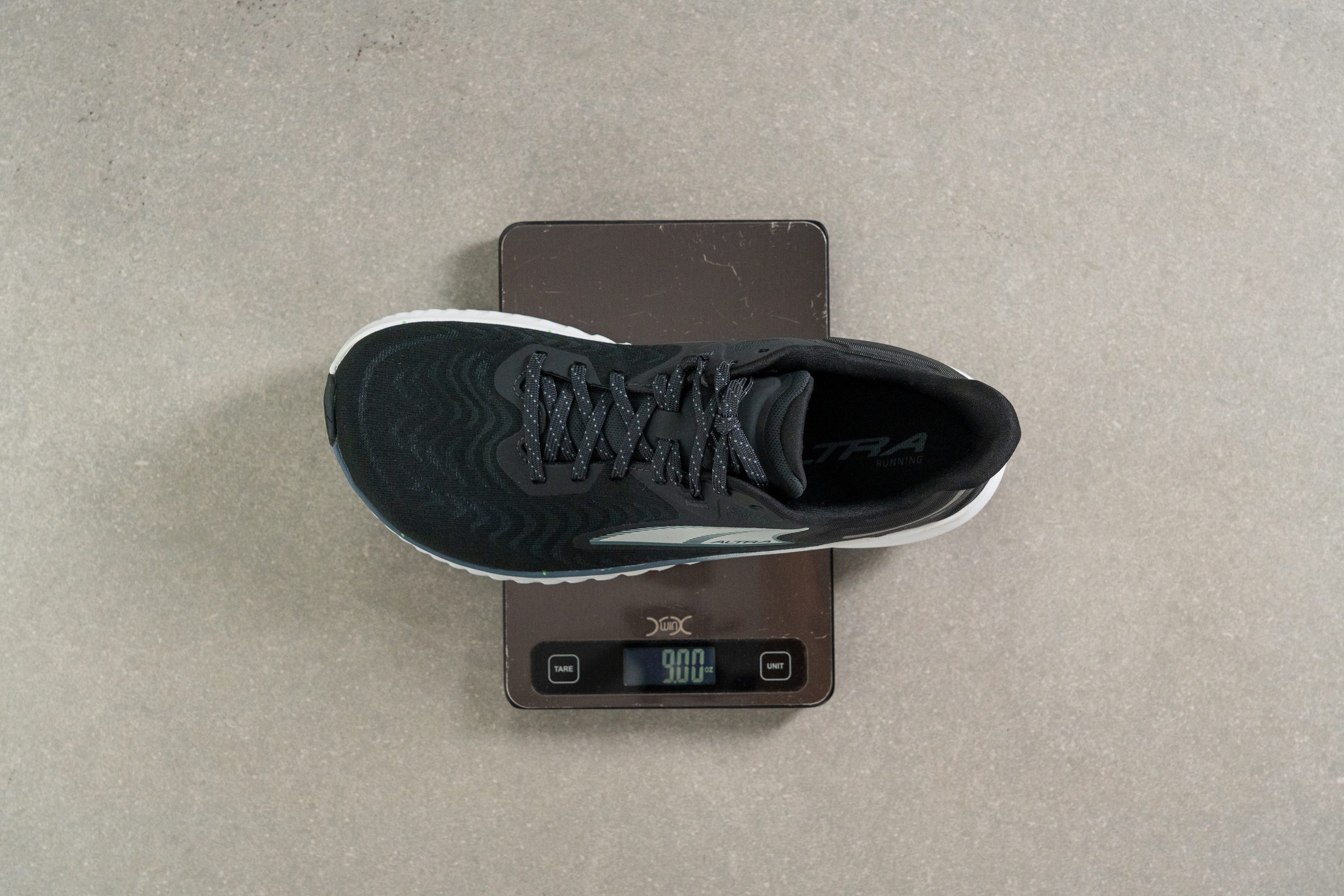
| Torin 7 | 9.0 oz (255g) |
| Average | 9.3 oz (264g) |
Breathability
We pumped the Torin 7 full of smoke to get an idea of how well heat vents from the shoe. As we can see from the video, smoke immediately escapes the shoe evenly through the upper and the tongue. This stellar performance earns the Torin 7 a perfect 5 out of 5 for breathability, making it a great choice for hot summer runs or runners based in warmer climates.
Shining a light through a cross section of the Torin 7’s upper, we can clearly see how easily it peeks through the many pores in the upper mesh.
Our closeup shots of the upper mesh show us how the more fluffy and dense weaves give way to more minimal, less compactly braided sections that form the shoe’s wavy pattern and allow heat to escape quickly and easily.
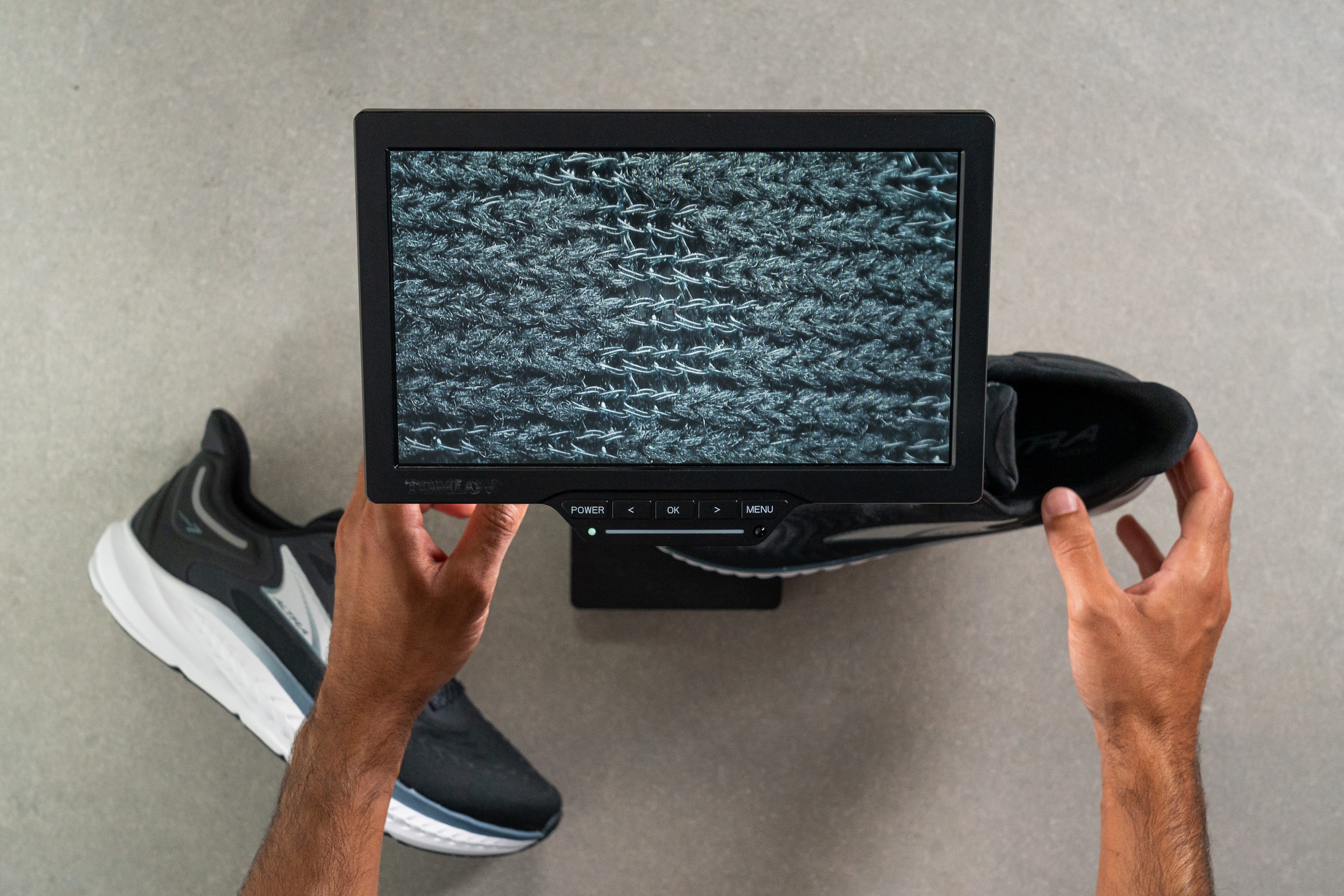
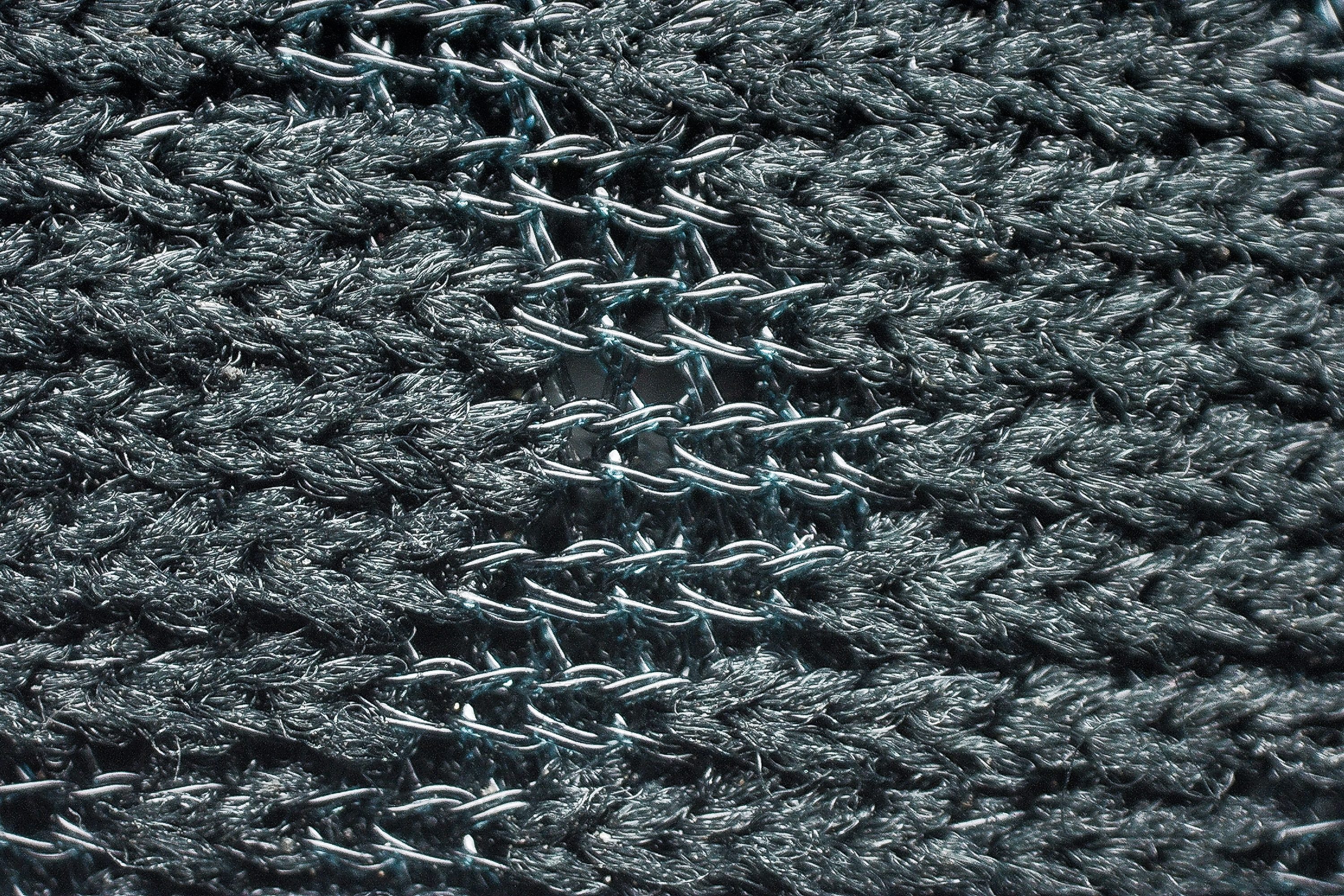
| Torin 7 | 5 |
| Average | 3.7 |
Stability
Lateral stability test
When shifting our weight from side to side in the Torin 7, we found the shoe to feel quite well planted on the ground despite its relatively high (forefoot) stack and plush midsole foam.
Torsional rigidity
The Torin 7 put up a mild level of resistance as we bent and twisted it in our hands, leading us to give it a score of 3 out of 5 on our subjective scale for torsional rigidity. This level of rigidity effectively offsets any tippiness associated with plush midsoles while still having enough give to allow the foot to bend and contrast naturally within the shoe.
| Torin 7 | 3 |
| Average | 3.5 |
Heel counter stiffness
The Torin 7’s heel counter is also moderately stiff based on squeezing and pushing at it with our hands, thus also earning a score of 3 out of 5 on our subjective scale. This level of stiffness in the heel collar means that we were able to achieve a good rearfoot lockdown that is both comfortable while also mitigating much side to side movement of our foot; further contributing to the shoe’s stable underfoot sensation.
| Torin 7 | 3 |
| Average | 2.9 |
Midsole width - forefoot
Like previous iterations of the shoe, the Torin 7 sports a broader than average midsole at the forefoot measuring 116.0 mm wide. This ensures stable and well-cushioned landings and toe-offs for forefoot striking runners. It does come at the expense of smooth cornering as the wide base up front makes the shoe feel a little blocky at high speeds.
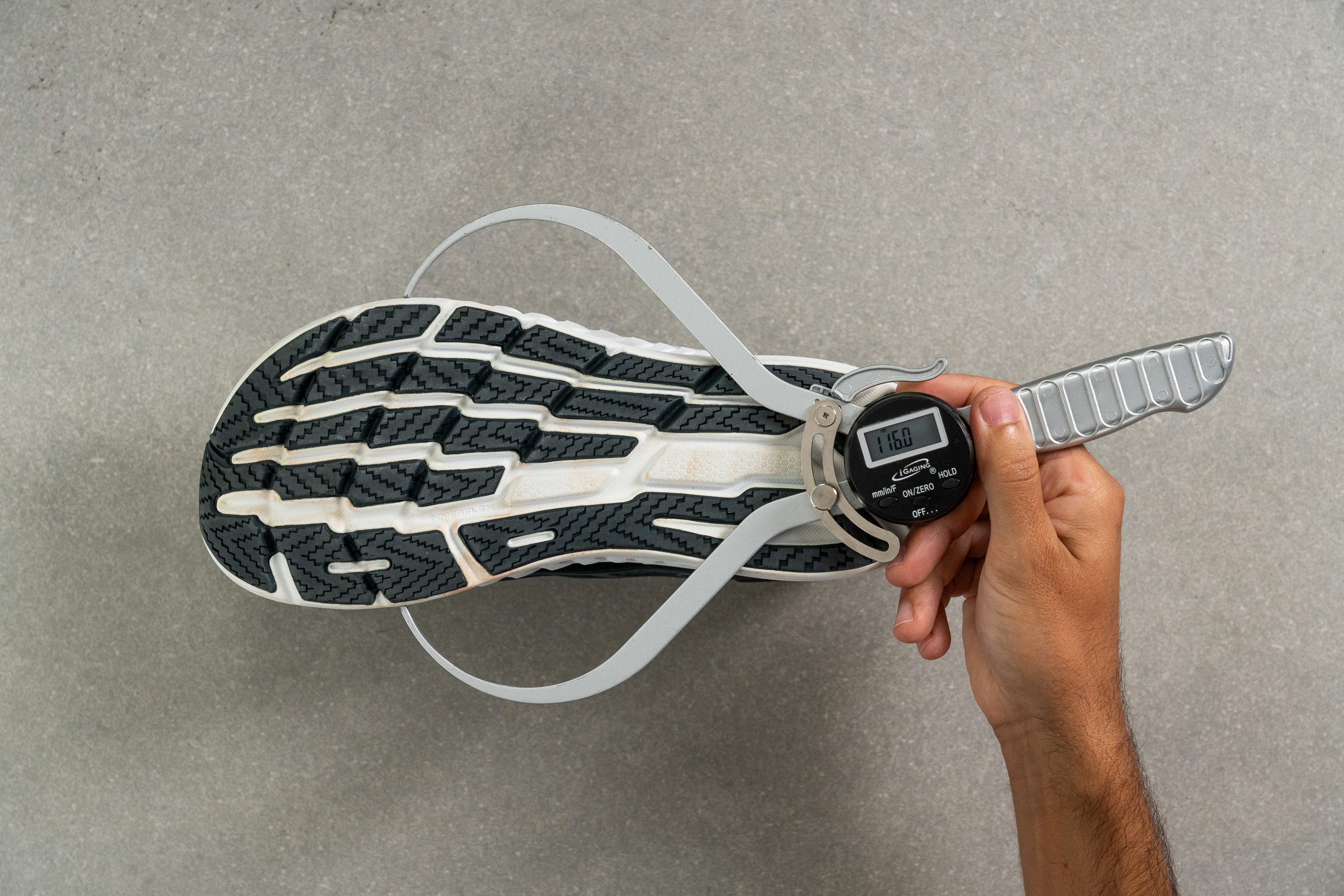
| Torin 7 | 116.0 mm |
| Average | 114.4 mm |
Midsole width - heel
Moving down to the heel, the Torin 7’s midsole measures 81.6 mm wide according to our caliper measurements. This is narrower than our current lab average which lends the shoe and aerodynamic silhouette that further contributes to the shoe’s light underfoot sensation.
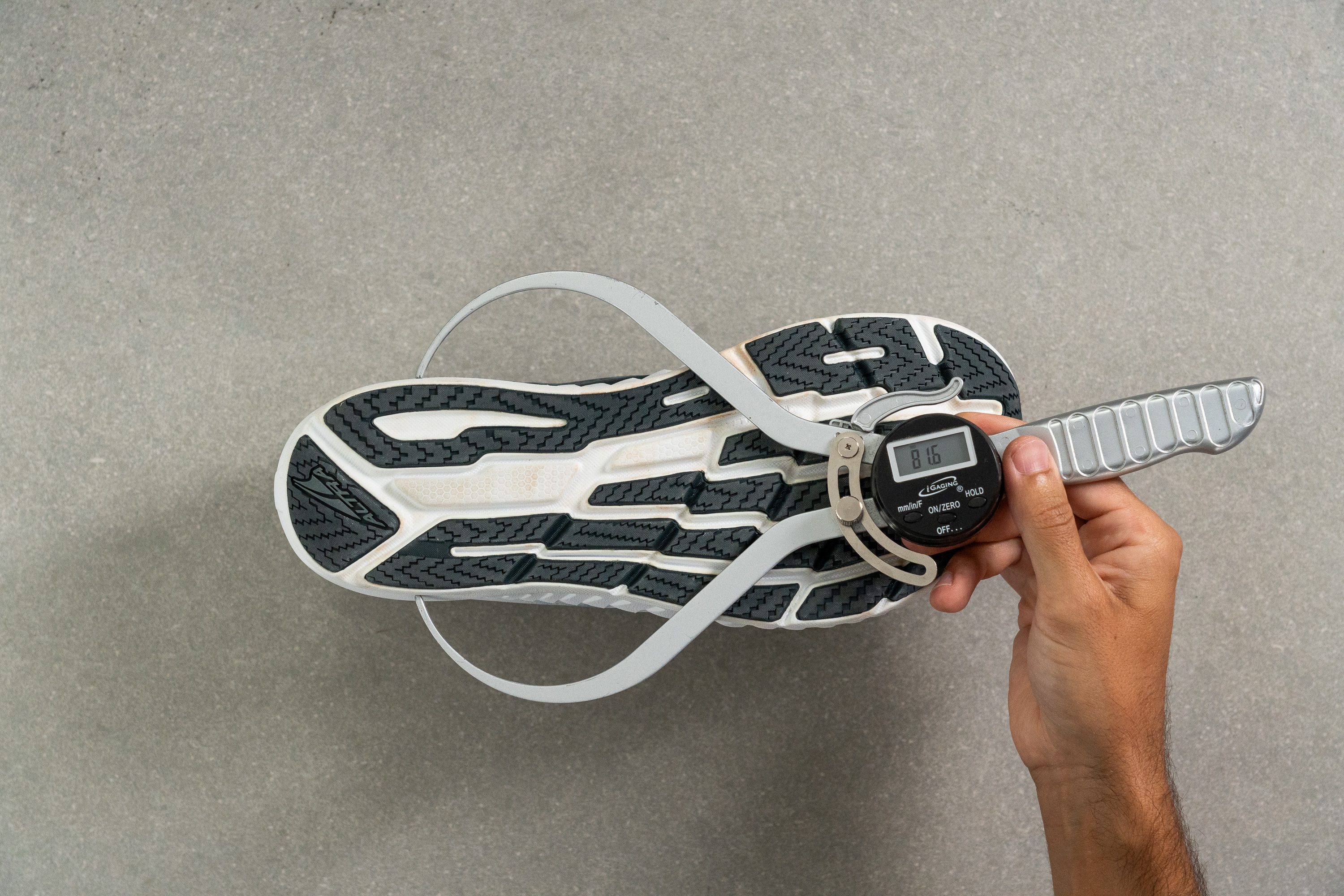
On the other hand, this also means that heel strikers have a much less stable landing platform than their forefoot striking counterparts. This in combination with the Torin 7’s drop height makes the shoe a less than ideal choice for those with a heel striking stride. For those runners we recommend having a look at the Hoka Gaviota 5 with its more substantial midsole at the heel.
| Torin 7 | 81.6 mm |
| Average | 90.6 mm |
Durability
Toebox durability
To simulate extreme wear and tear on the Torin 7’s toebox, we subjected the shoe to our dremel’s grinding element at 5K RPM with a force of 3.2N. The tool seems to have trouble biting into the upper mesh at first, but eventually starts shredding away. Once the four second test was over, we were pleasantly surprised to find relatively minor damage in its wake. With only a small hole and no major snags or rips going beyond the contact area, we give the Torin 7 a toebox durability score of 3 out of 5.
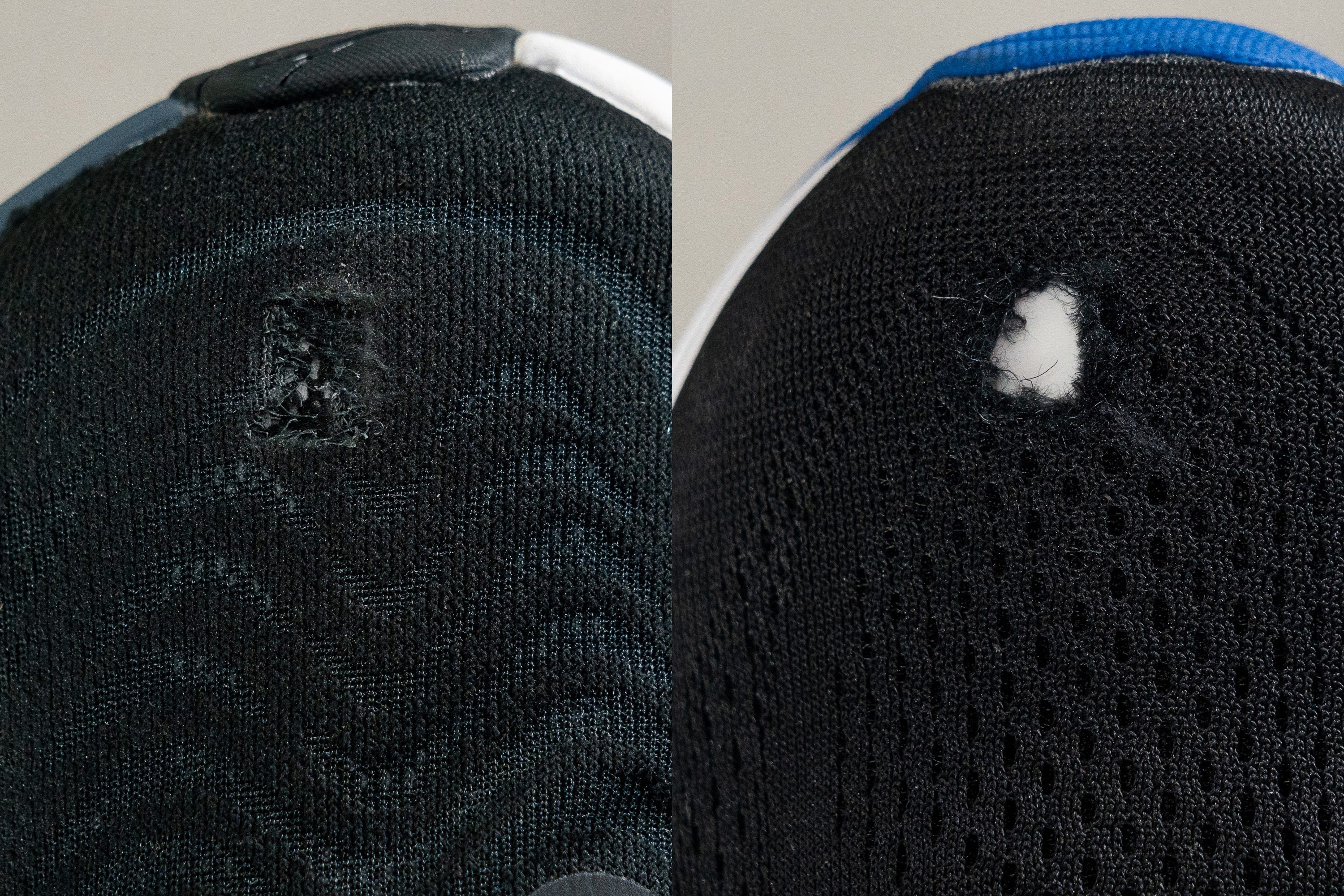
For context, have a look at the aftermath of the same test on the ASICS GT 100 12's toebox which took much more damage.
| Torin 7 | 3 |
| Average | 2.6 |
Heel padding durability
Firing up our dremel to the same parameter as our previous test and set upon Torin 7’s heel counter for another four seconds. While it initially sent some shreds of material flying, by the end of the test we found that we had only torn through the lining and a couple millimeters of padding. This earns the Torin 7 a heel padding durability score of 3 out of 5. This means that going sockless shouldn’t result in too much friction wear on the Torin 7’s heel padding.
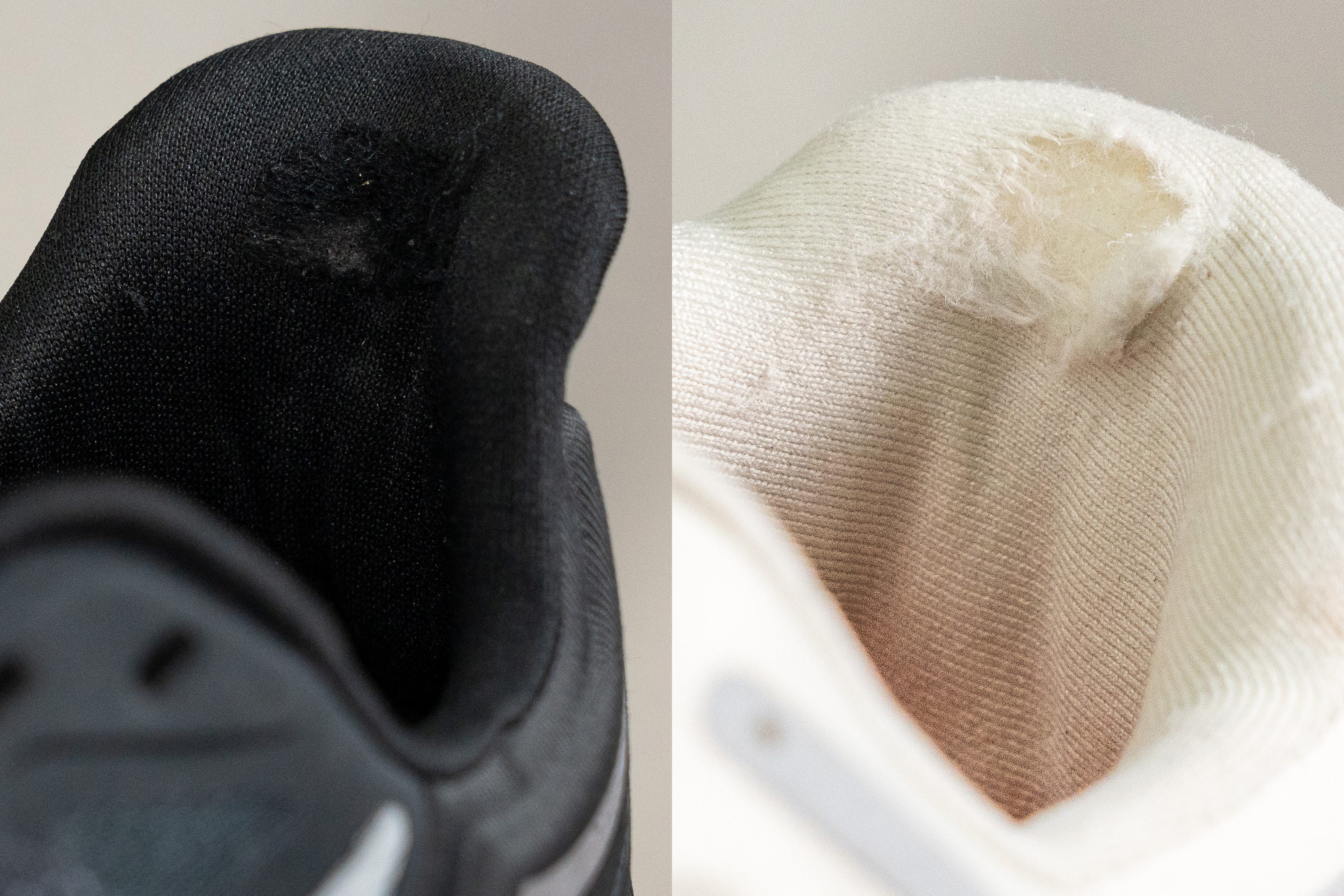
For an example of a not so durable heel counter, check out how the Altra VIA Olmypus held up against our dremel.
| Torin 7 | 3 |
| Average | 3.4 |
Outsole hardness
We used our durometer to measure the hardness of the Torin 7’s outsole and got a result of 74.5 HC which is softer than our current lab average. This level of hardness on the one hand means that the shoe is soft enough to really bite into surfaces and provide us with good traction while, on the other, sacrificing overall durability.
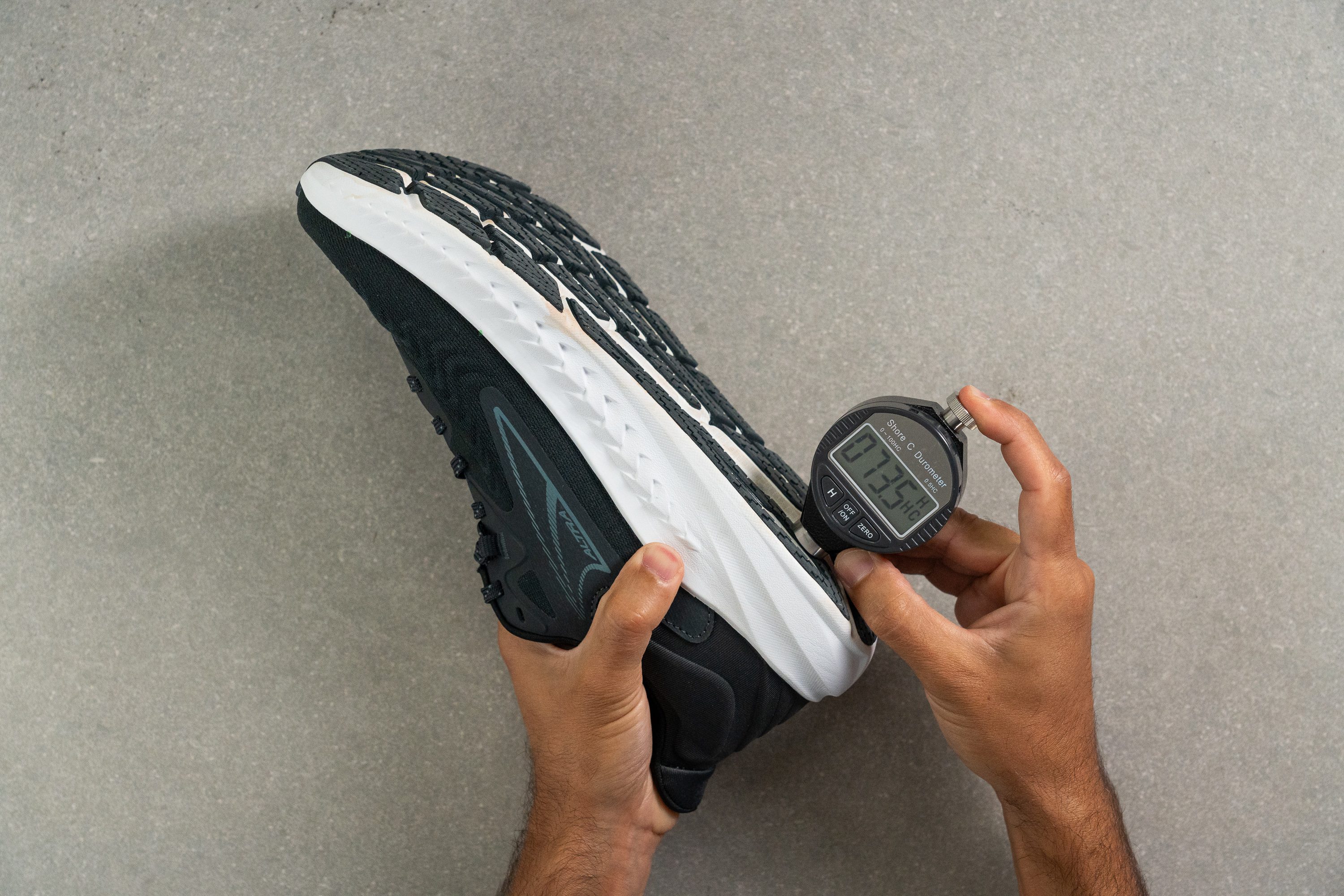
| Torin 7 | 74.5 HC |
| Average | 79.2 HC |
Outsole durability
We again turned to our trusty dremel to test the durability of the Torin 7’s outsole; firing it up to 10K RPM and applying it to the shoe with a force of 3.2N. While it doesn’t seem to have much effect at first, the shorn-off material soon begins piling up next to the tool’s relentless grinding element.
Once the twenty second test was over, we found that we had lopped off 1.14 mm of material from the outsole, making it less durable than our current lab average. Thus, while we still predict that the shoe should last 400 miles, we expect to see significant signs of wear at that point.
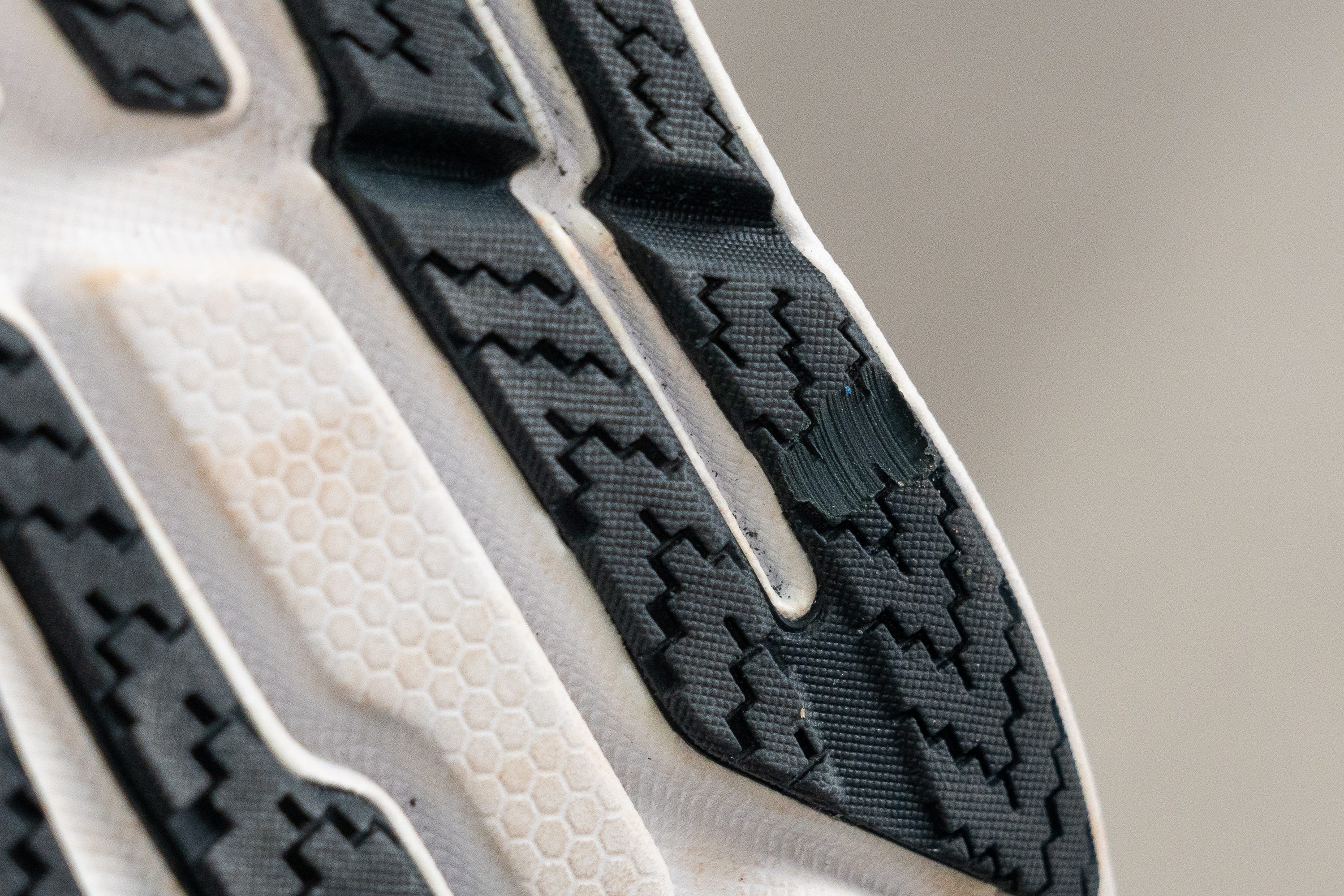
| Torin 7 | 1.1 mm |
| Average | 1.1 mm |
Outsole thickness
The Torin 7’s outsole is ever-so slightly thinner than, but still on par with our lab average at 3.1 mm thick. This means that our previous test ate away at just over a third of the outsole material. While a little more rubber would definitely increase the life expectancy of the shoe, it would come at the cost of some added weight.
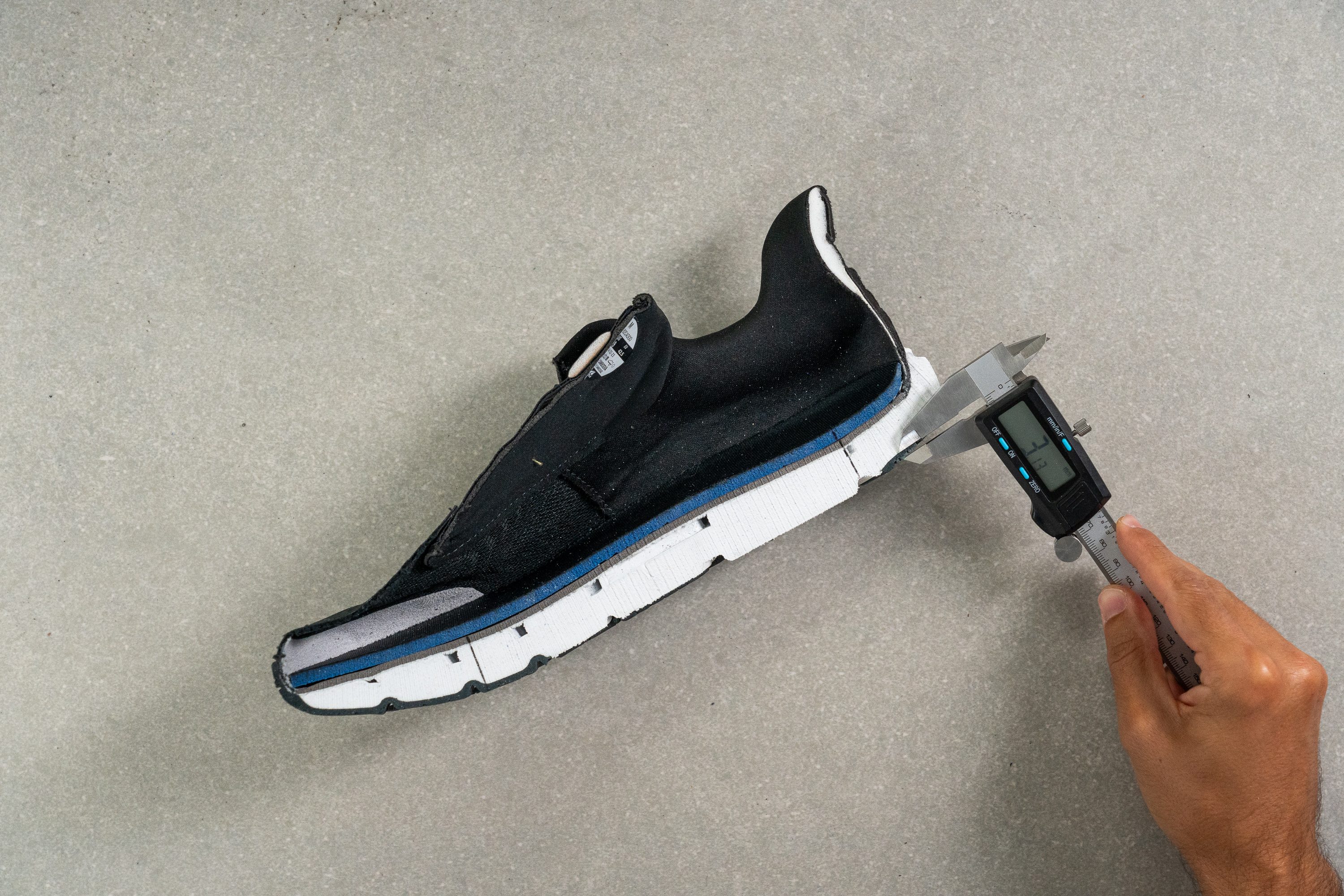
| Torin 7 | 3.1 mm |
| Average | 3.2 mm |
Misc
Insole thickness
At 4.7 mm thick according to our caliper, the Torin 7’s Ortholite sockliner is right around the average range for road shoes. What’s more, below the insole is a lasting board made of TPE foam which acts as a soft transition between the midsole and the insole. Both these features serve to complement the shoe’s midsole cushioning and further contribute to the shoe’s soft and protective cushioning.
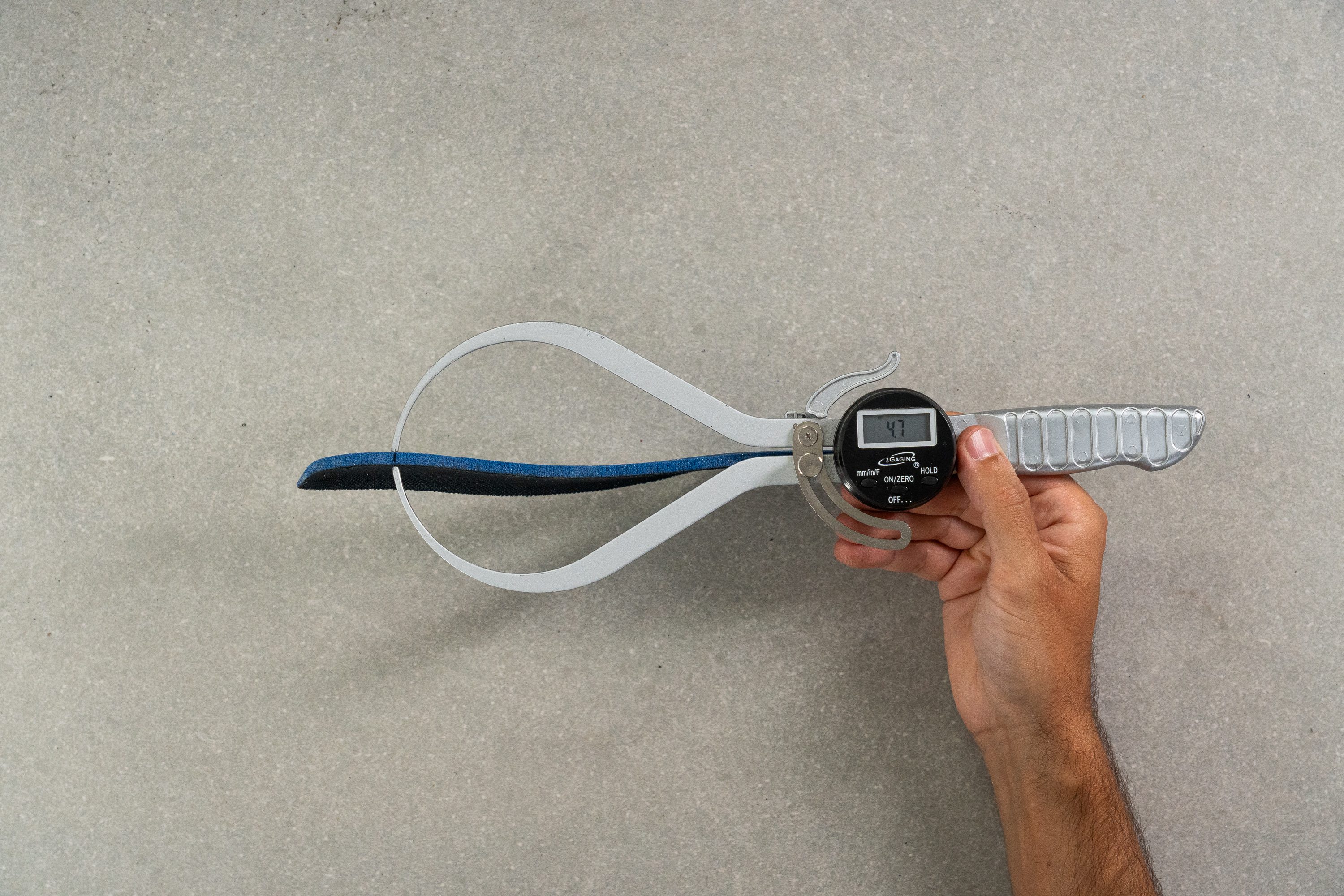
| Torin 7 | 4.7 mm |
| Average | 4.5 mm |
Removable insole
The Torin 7’s midsole is removable, making it compatible with custom orthotics where necessary.
| Torin 7 | Yes |
Midsole softness in cold (%)
To see how the shoe’s midsole reacts to cold conditions, we let the Torin 7 chill in the freezer for twenty minutes. We then re-applied our durometer to the shoe’s foam and got a reading of 24.9 HA. This is softer than the average shoe under similar conditions and means that the Torin 7 won’t freeze into ice blocks and should still provide a balanced level of cushioning even during the most frigid winter runs.
With the shoe’s midsole becoming 48.5% firmer in the cold, the Torin 7 is less consistent than the average shoe depending on the surrounding temperature. While this means that the shoe will certainly feel different between warm and cold days, it’s important to note that the shoe’s post-freezer durometer reading is on par with the average shoe’s level of softness at room temperature!
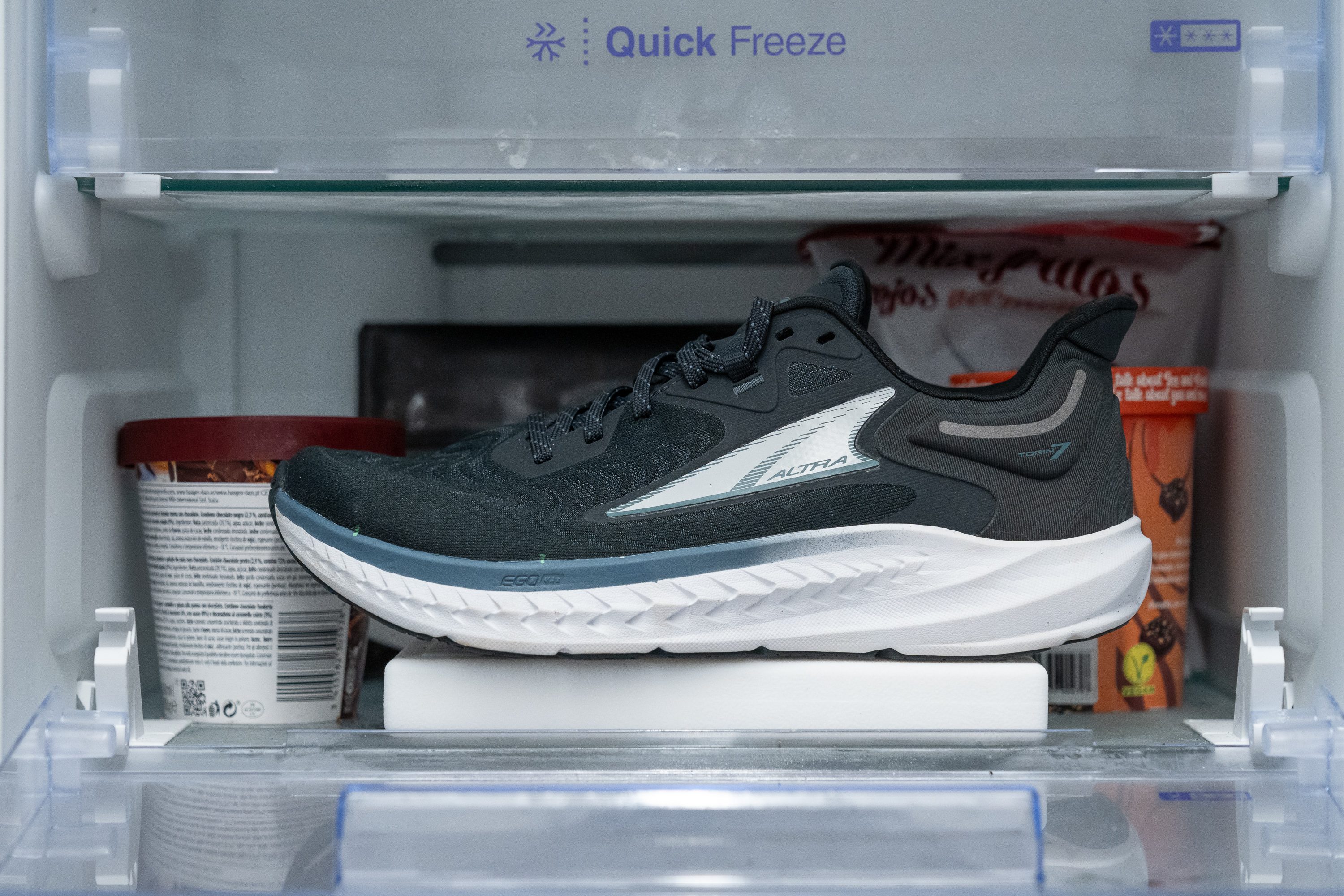
| Torin 7 | 49% |
| Average | 24% |
Reflective elements
The Torin 7 features reflective elements at the rear and rear/lateral side of the shoe. While this means that we are technically visible at night, we recommend sticking to well lit routes when going for nocturnal runs in this shoe.
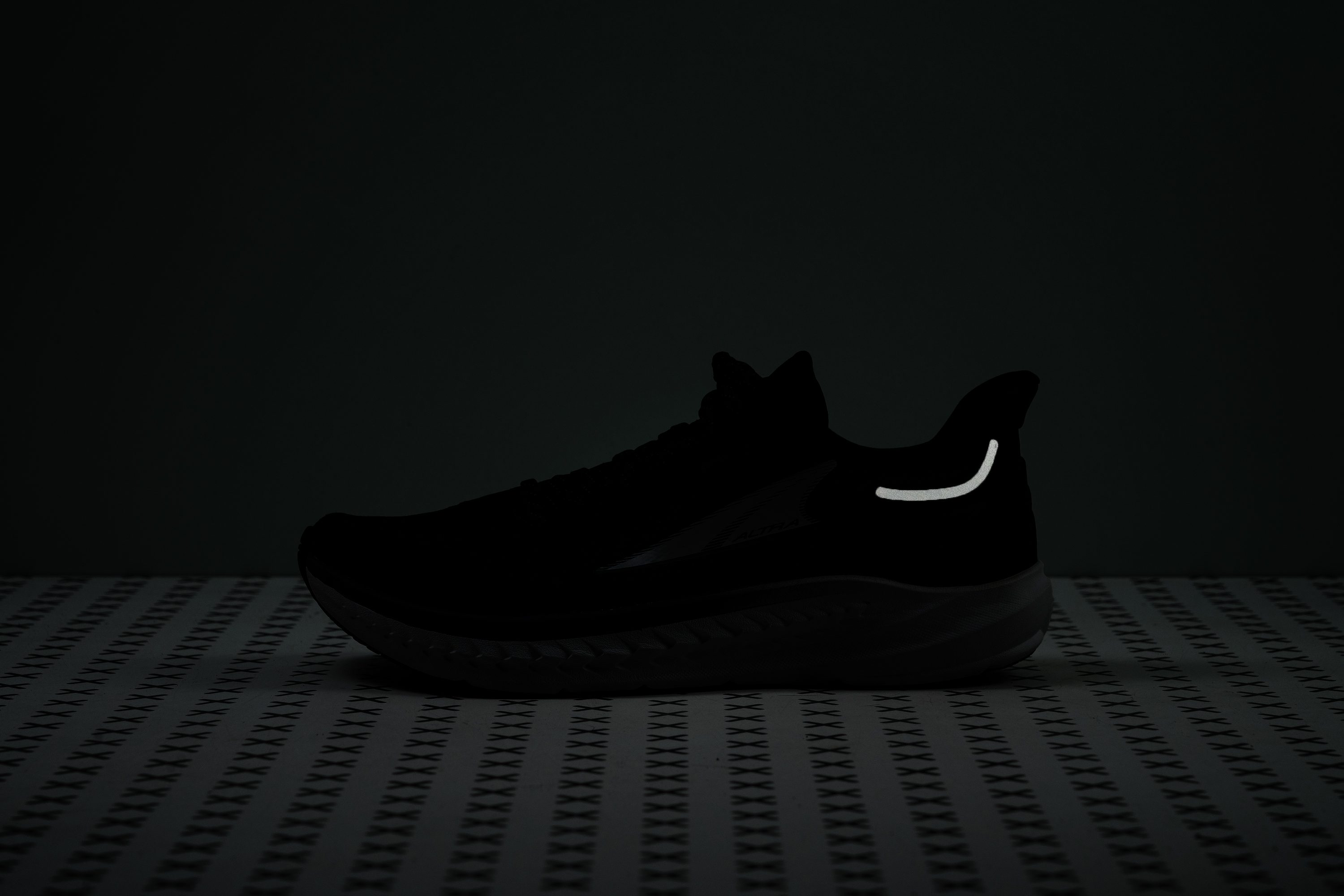
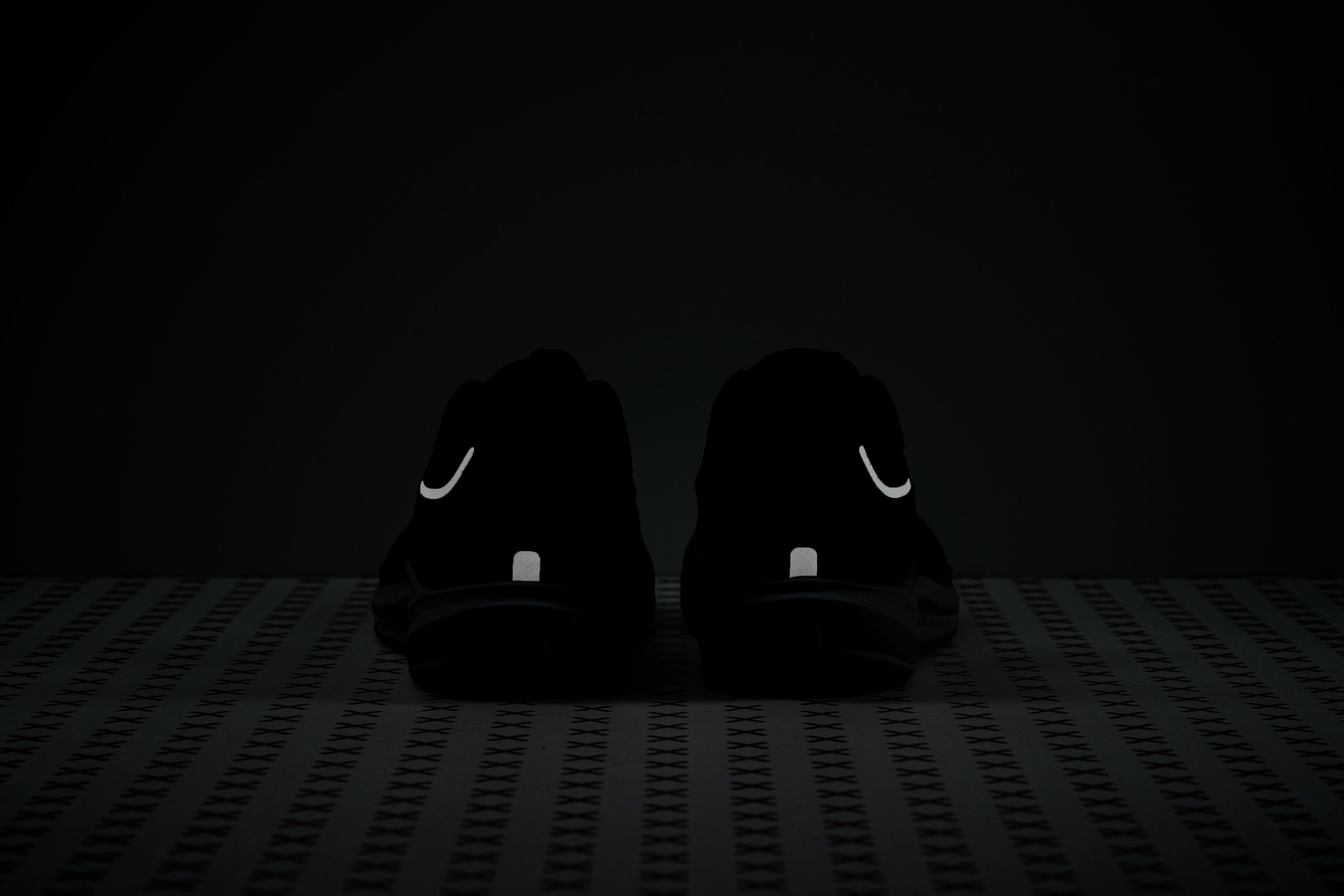
| Torin 7 | Yes |
Tongue padding
The Torin 7’s tongue is a little more padded than the average road shoe, measuring 6.3 mm thick according to our caliper. This helped us achieve a good midfoot lockdown while providing good comfort around the instep and avoiding lace bite.
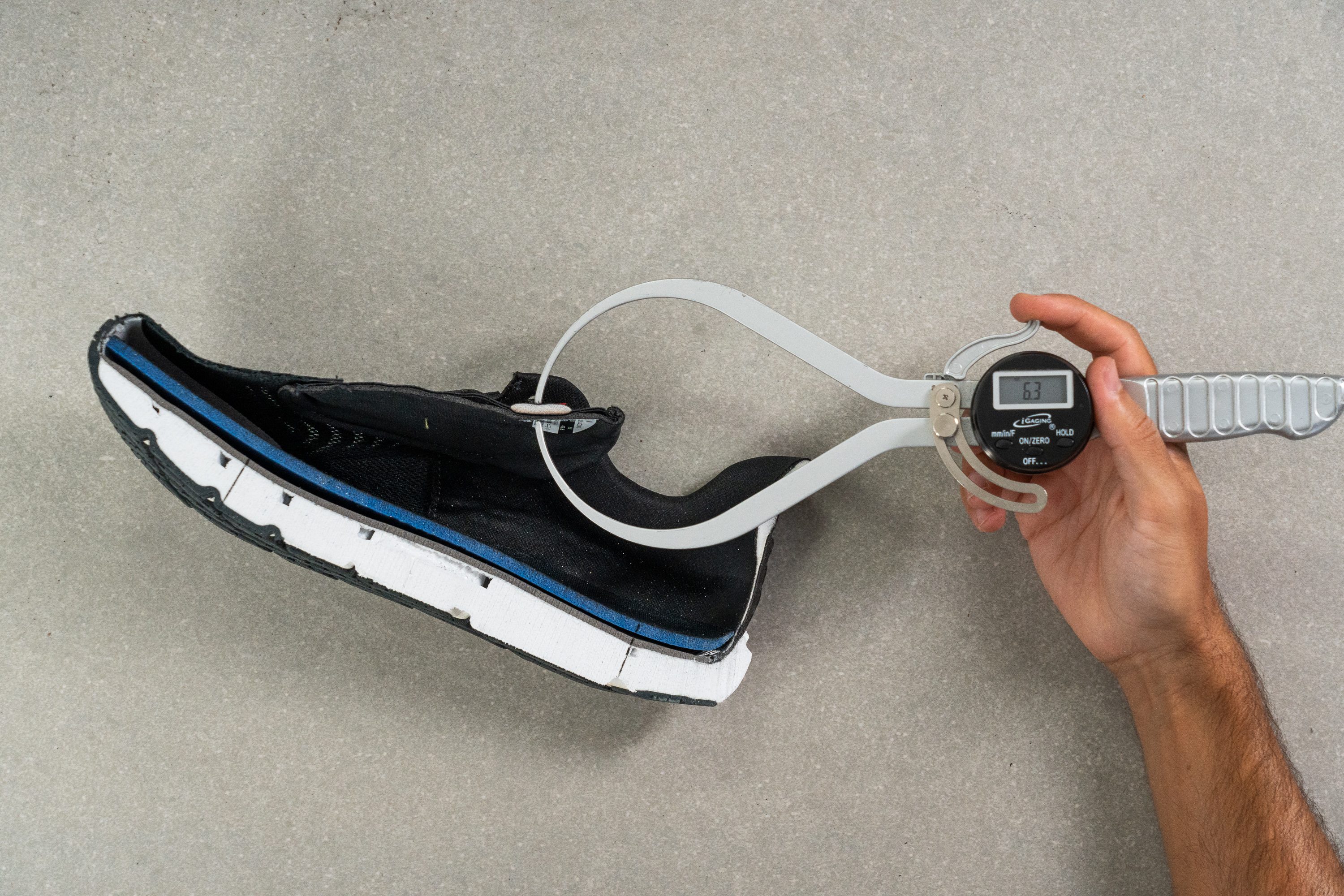
| Torin 7 | 6.3 mm |
| Average | 5.7 mm |
Tongue: gusset type
The Torin 7’s tongue is non-gusseted but features a lace loop that helps to prevent it from slipping from side to side.
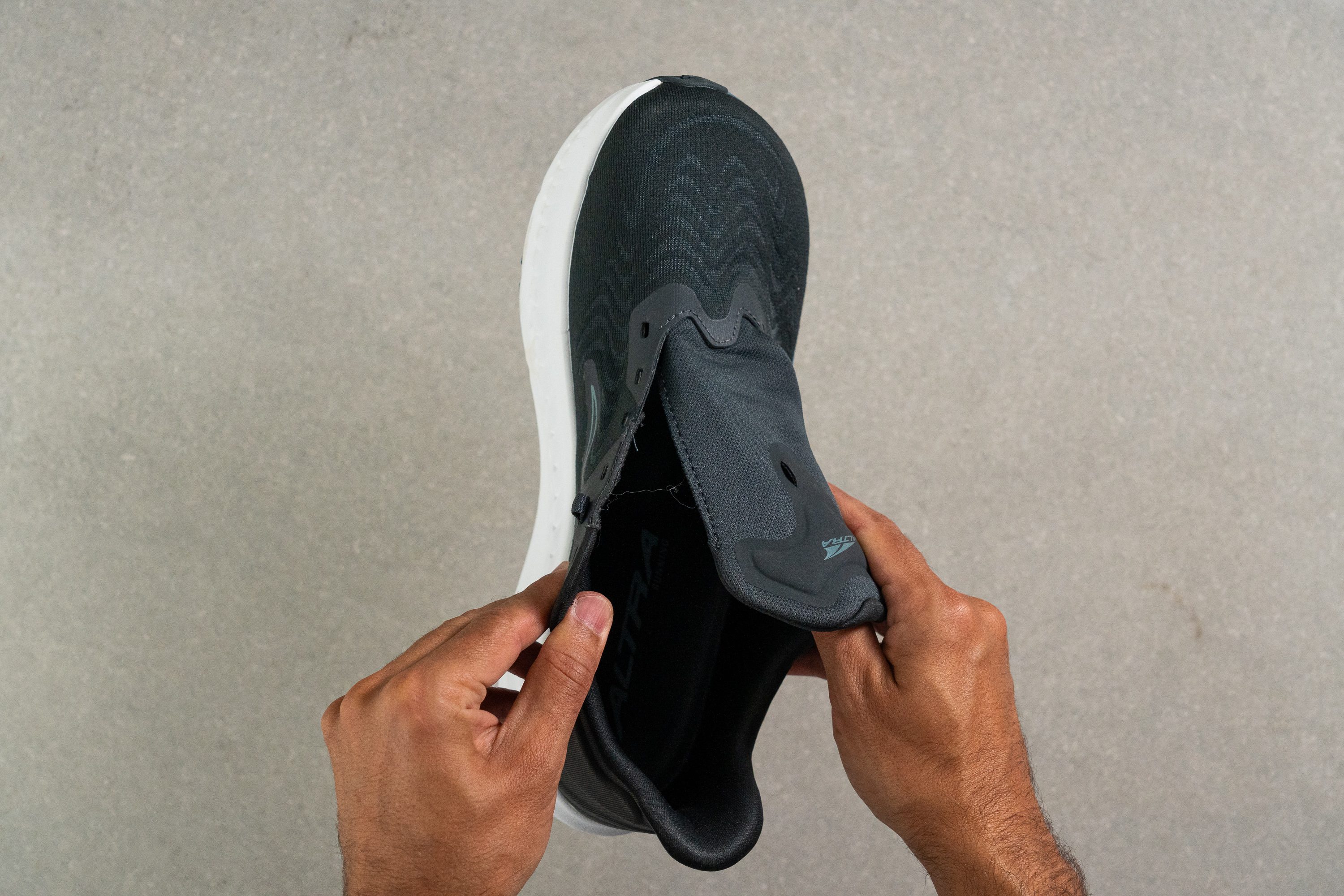
| Torin 7 | None |
Heel tab
The Altra Torin 7's extended heel collar serves as a lever for easy on and off.
| Torin 7 | Extended heel collar |

